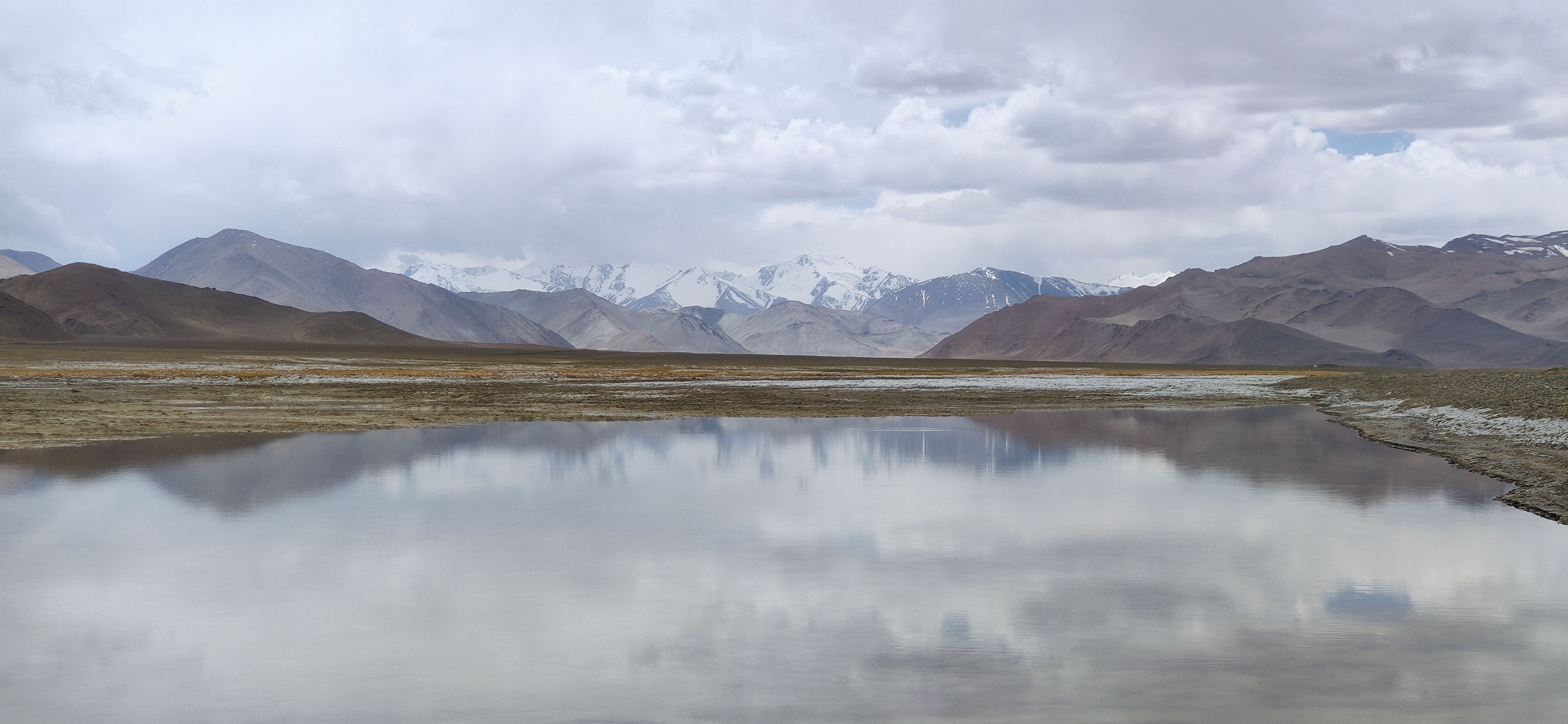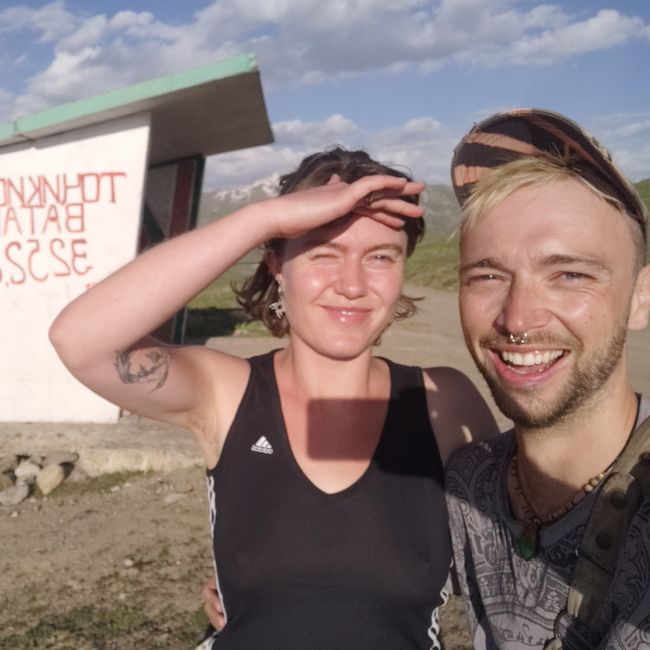More beautiful architecture, an Uzbek wedding and shipwrecks in the desert
شائع شدہ: 16.05.2022
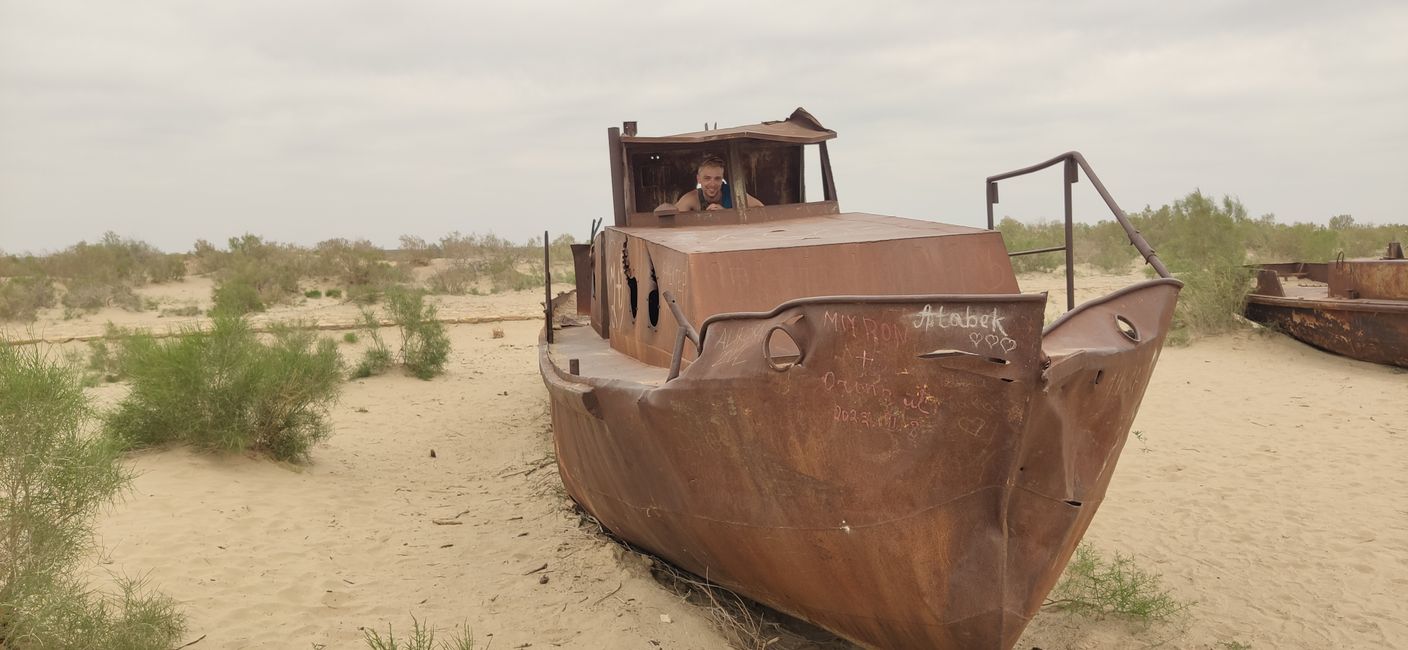
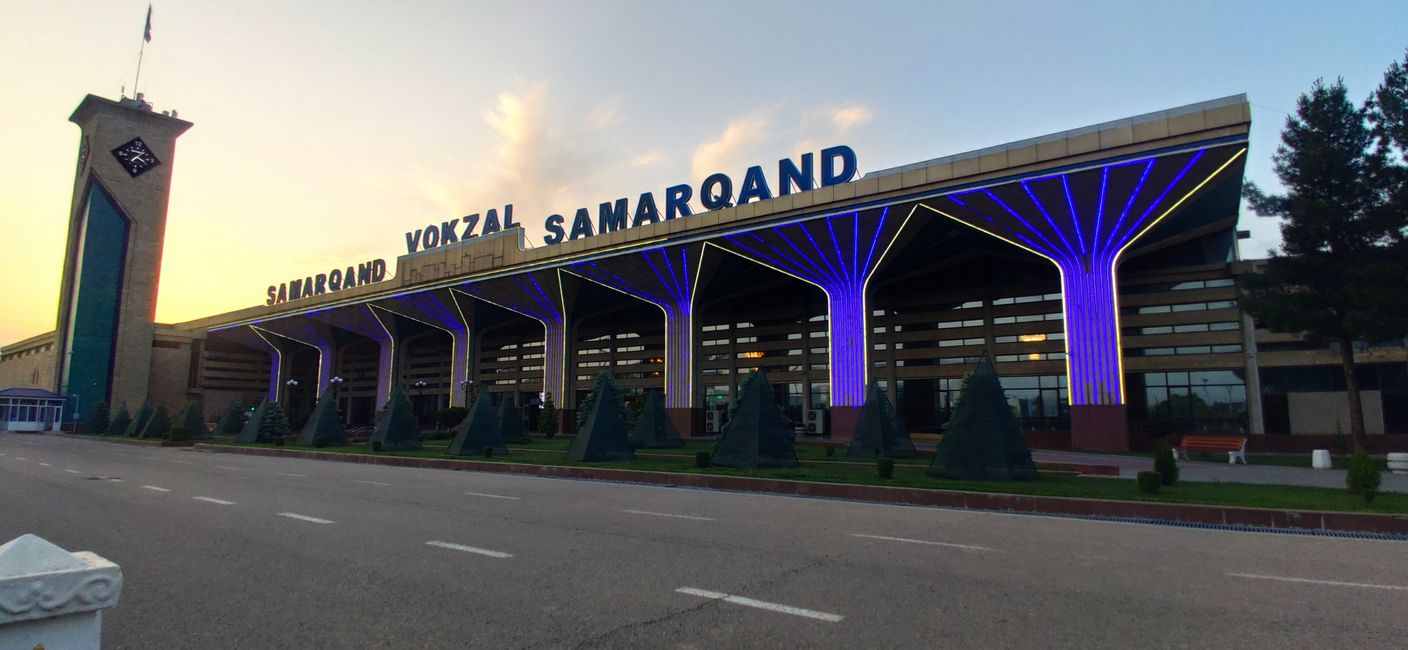
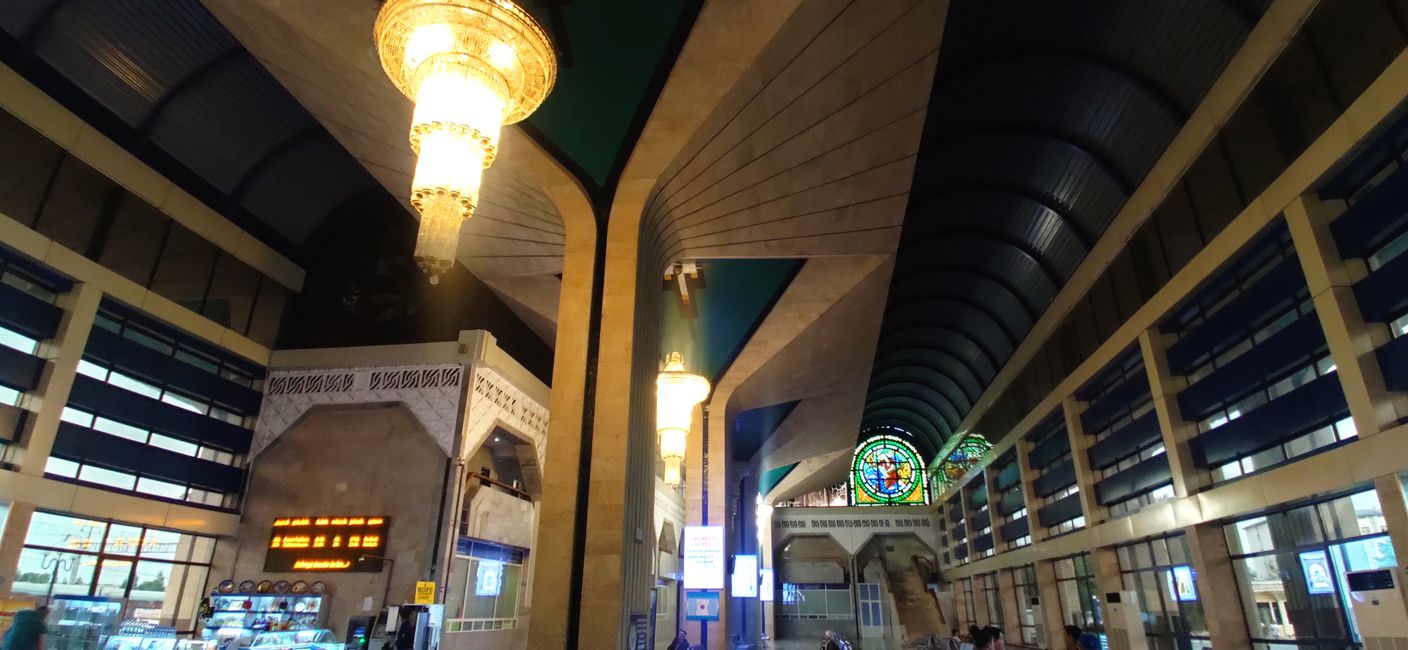
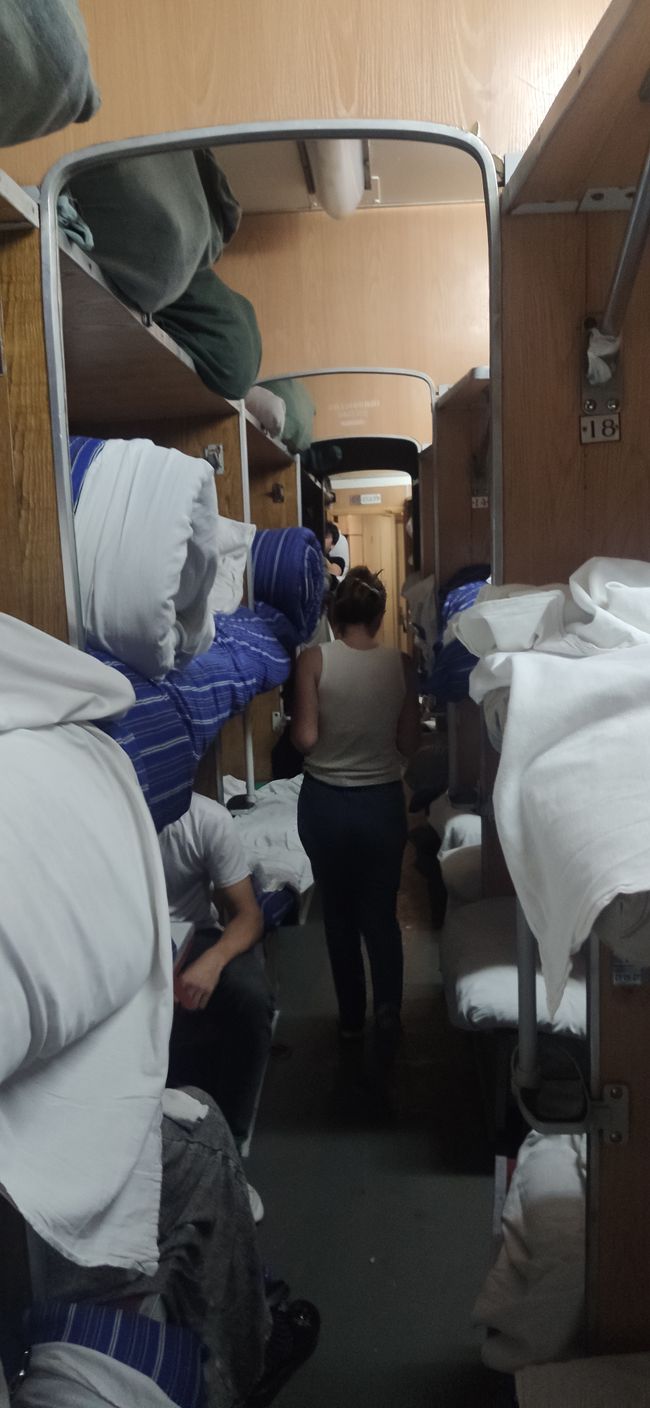
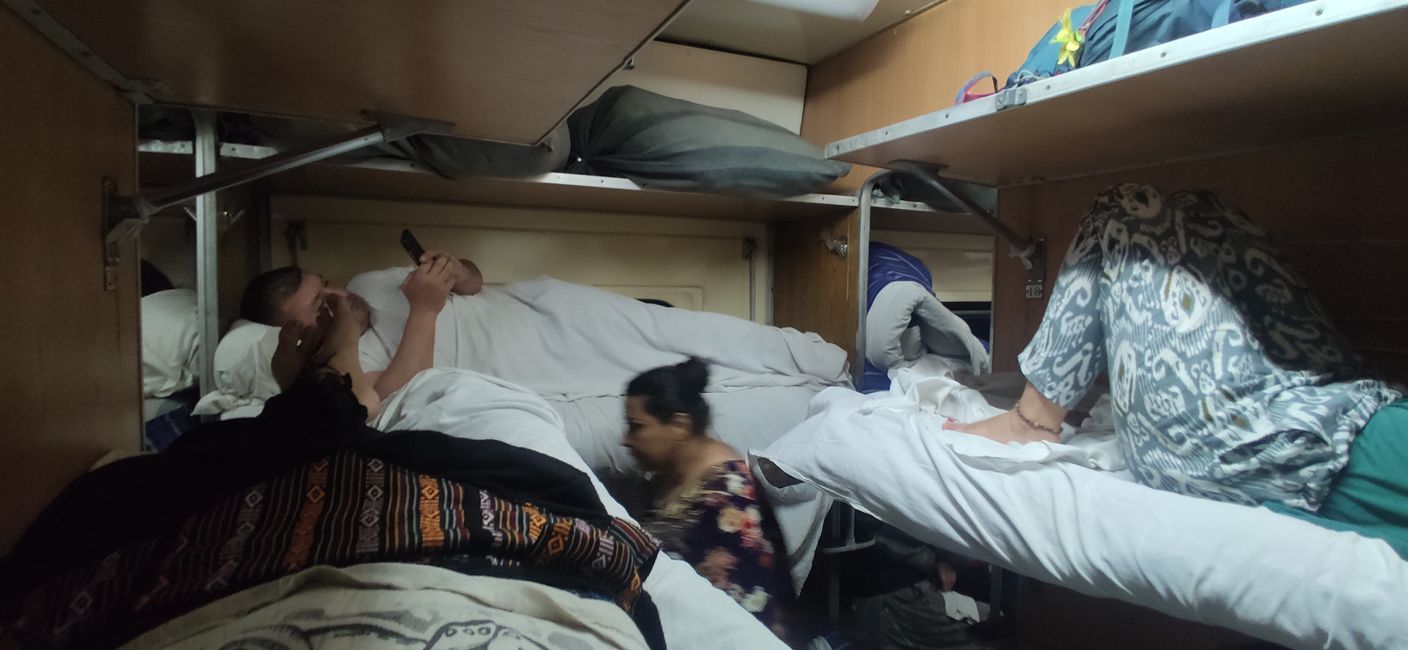
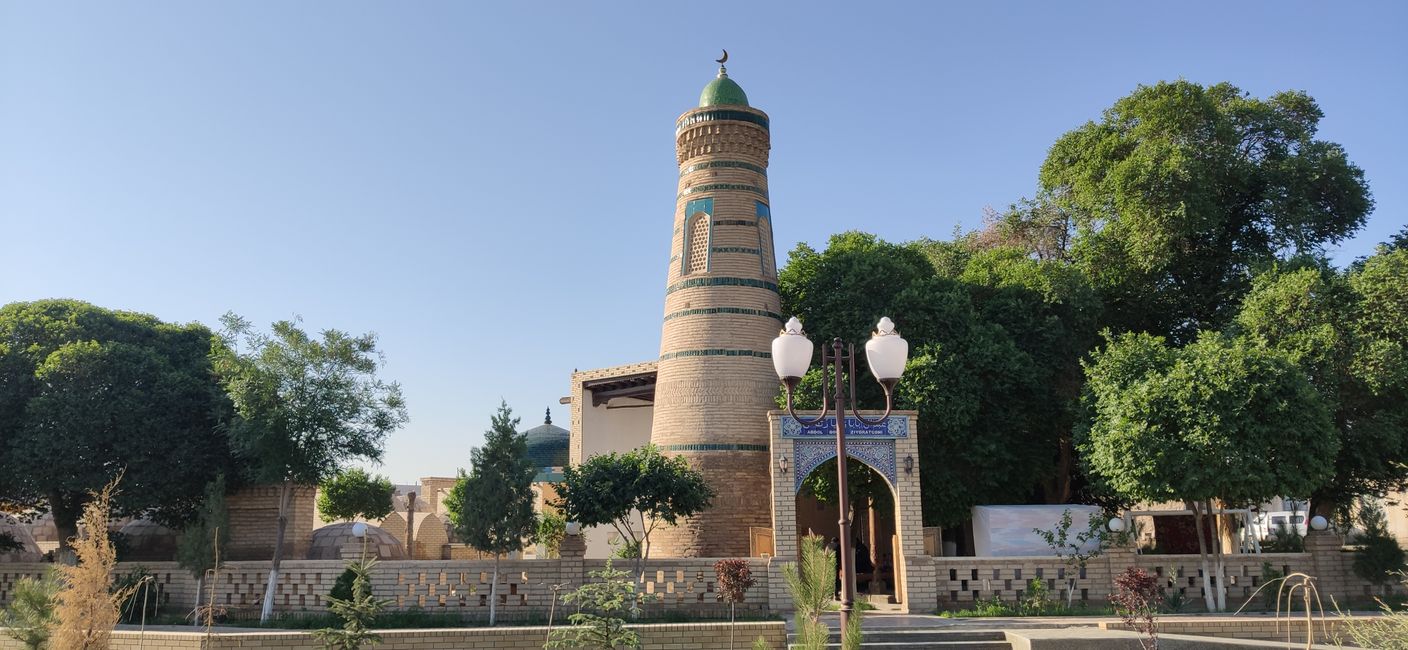
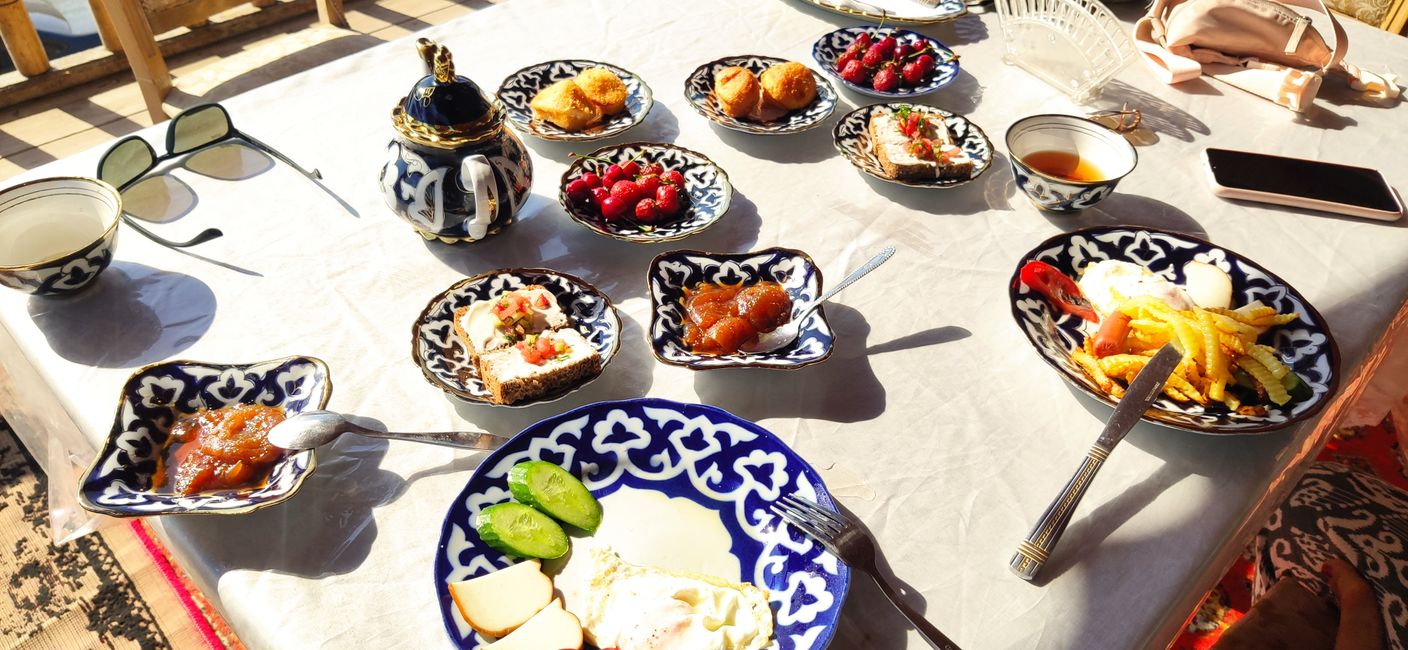
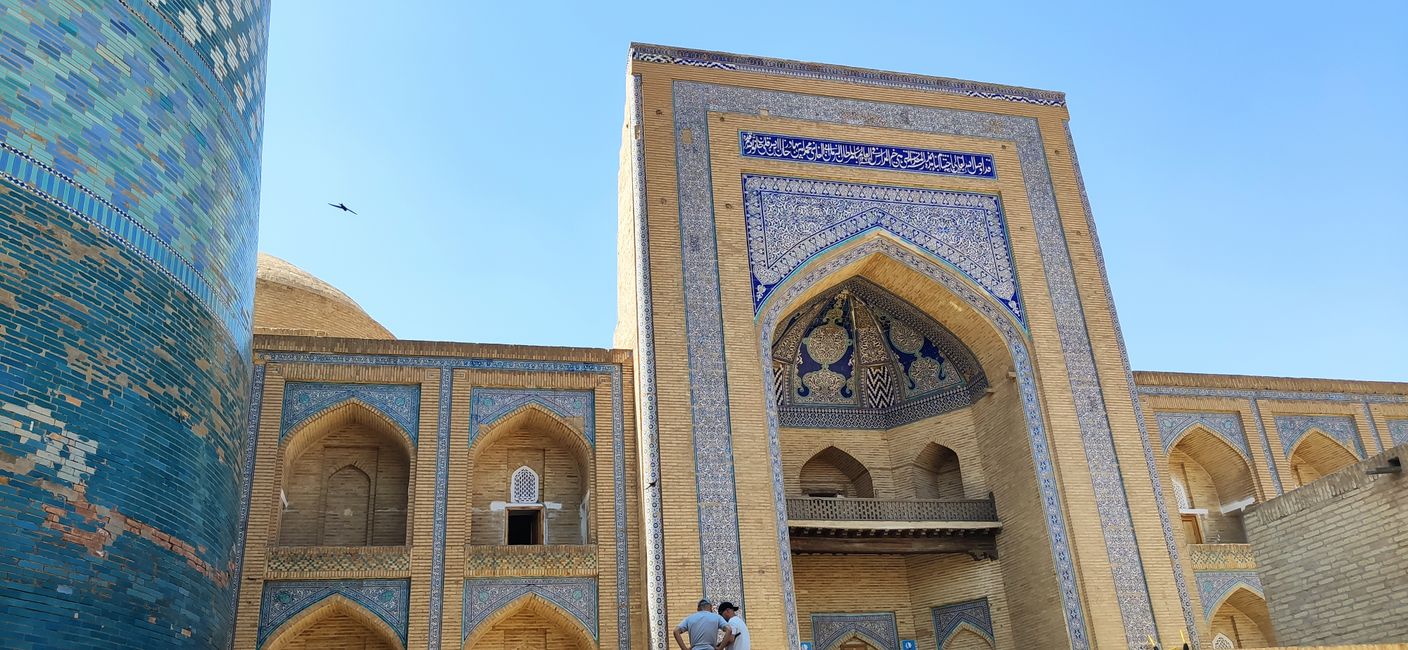
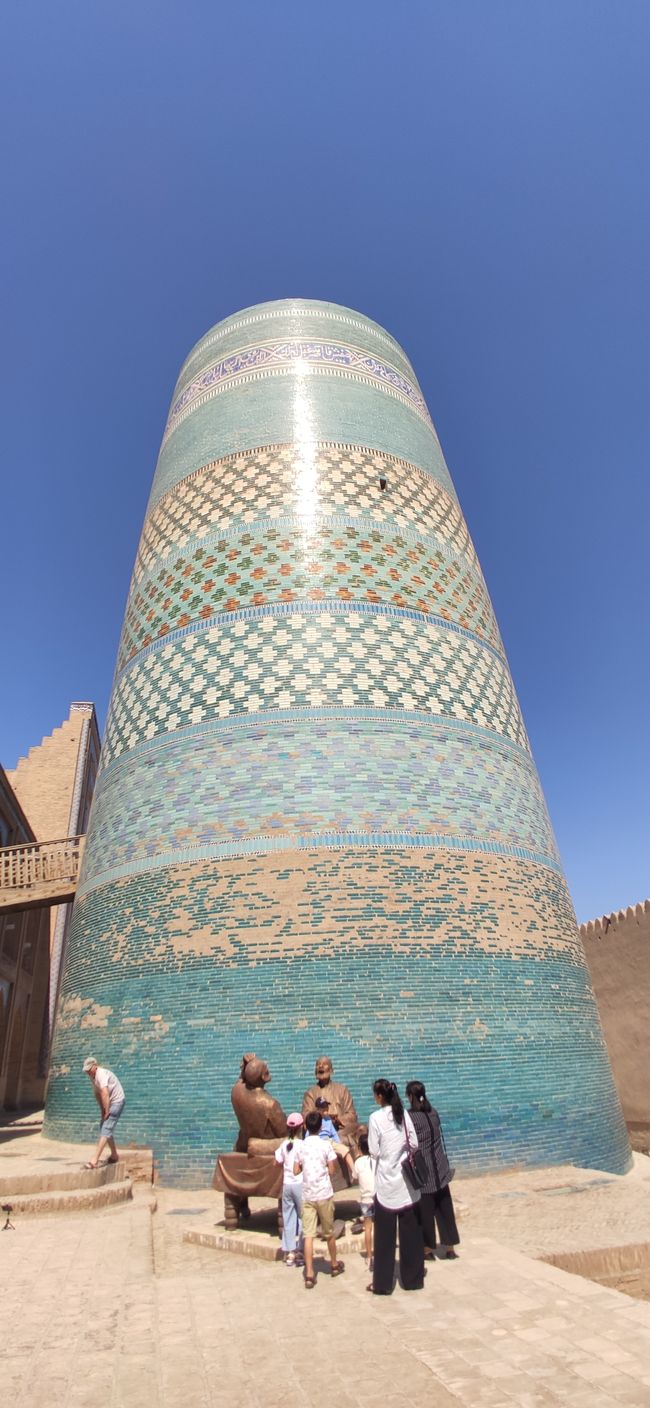
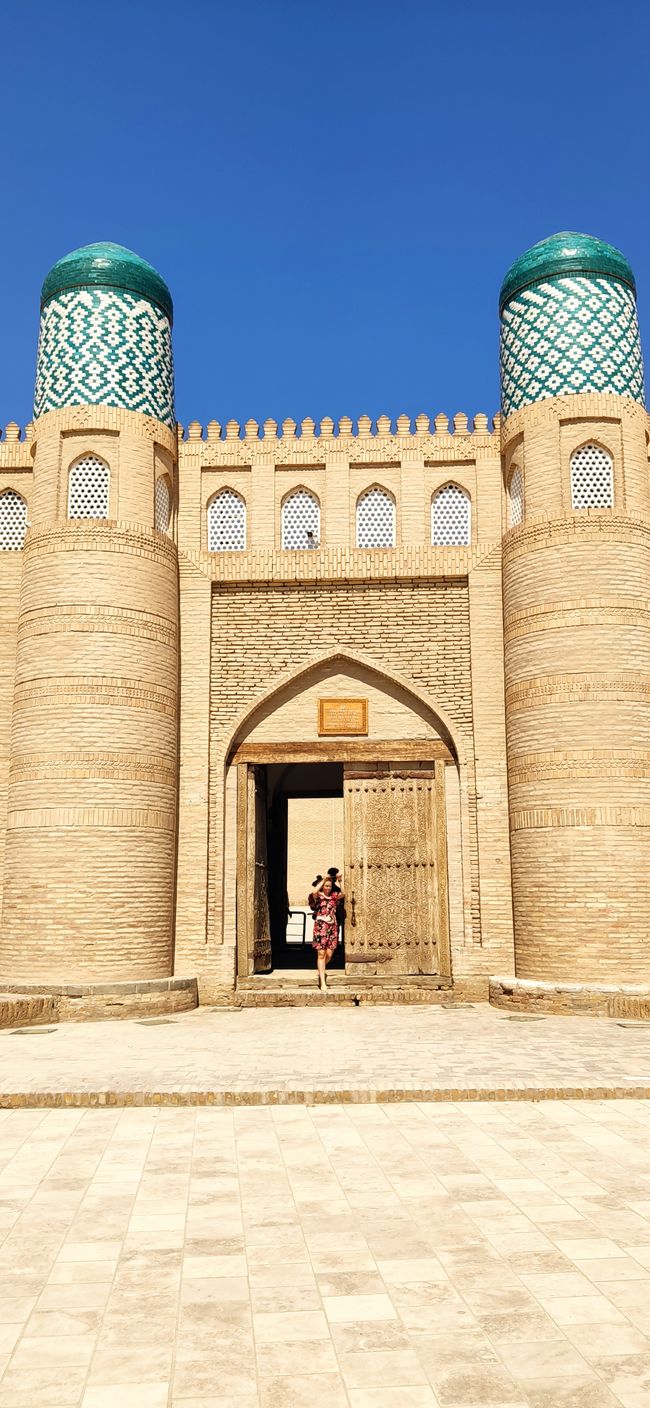
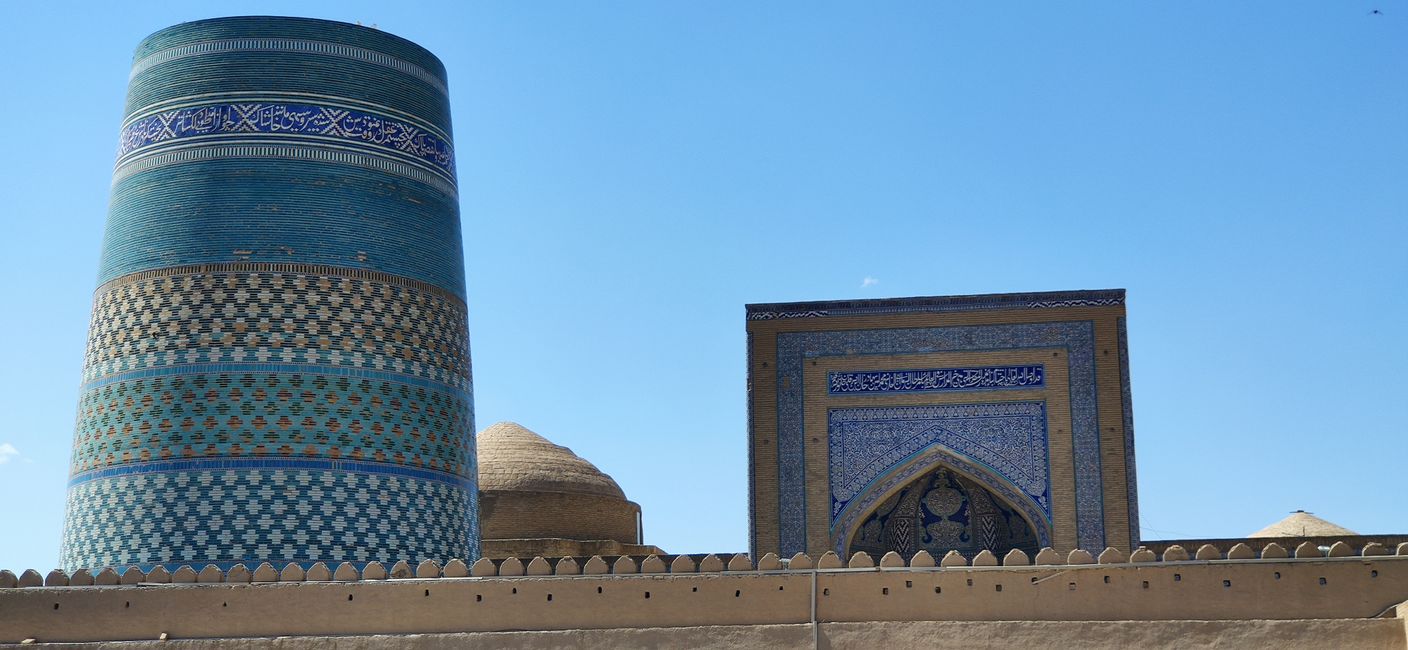
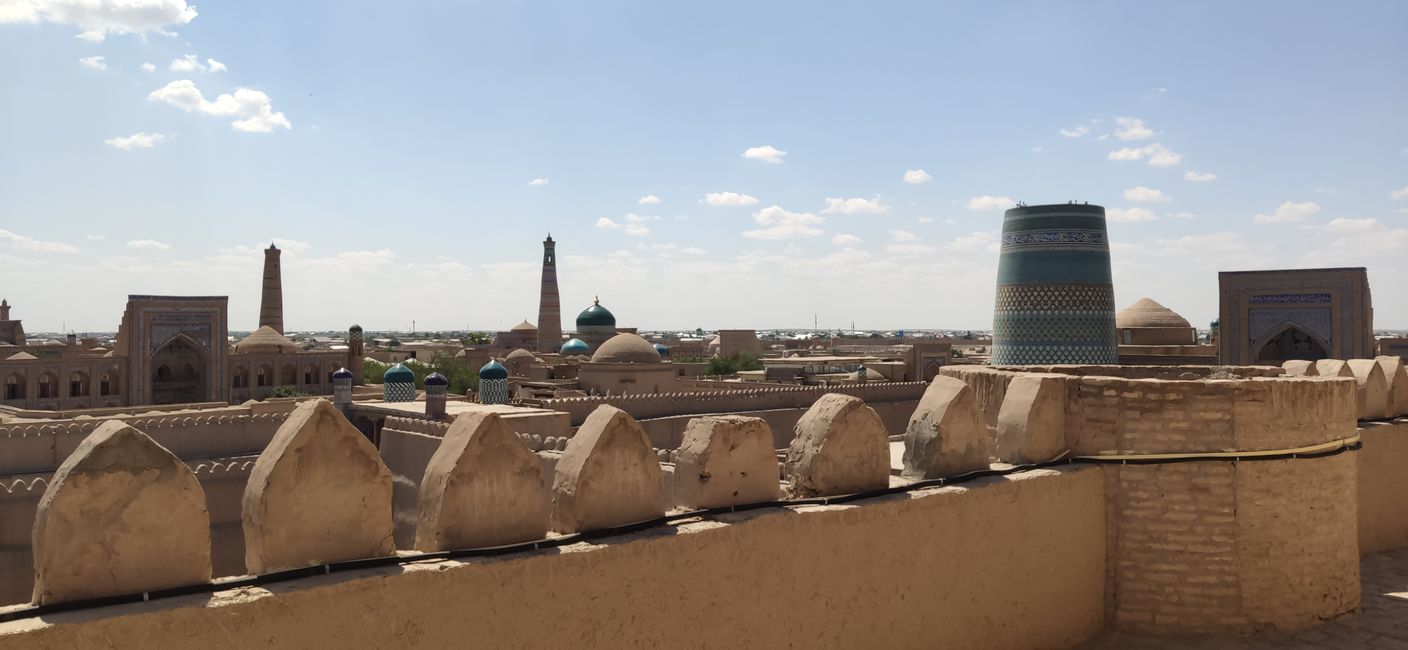
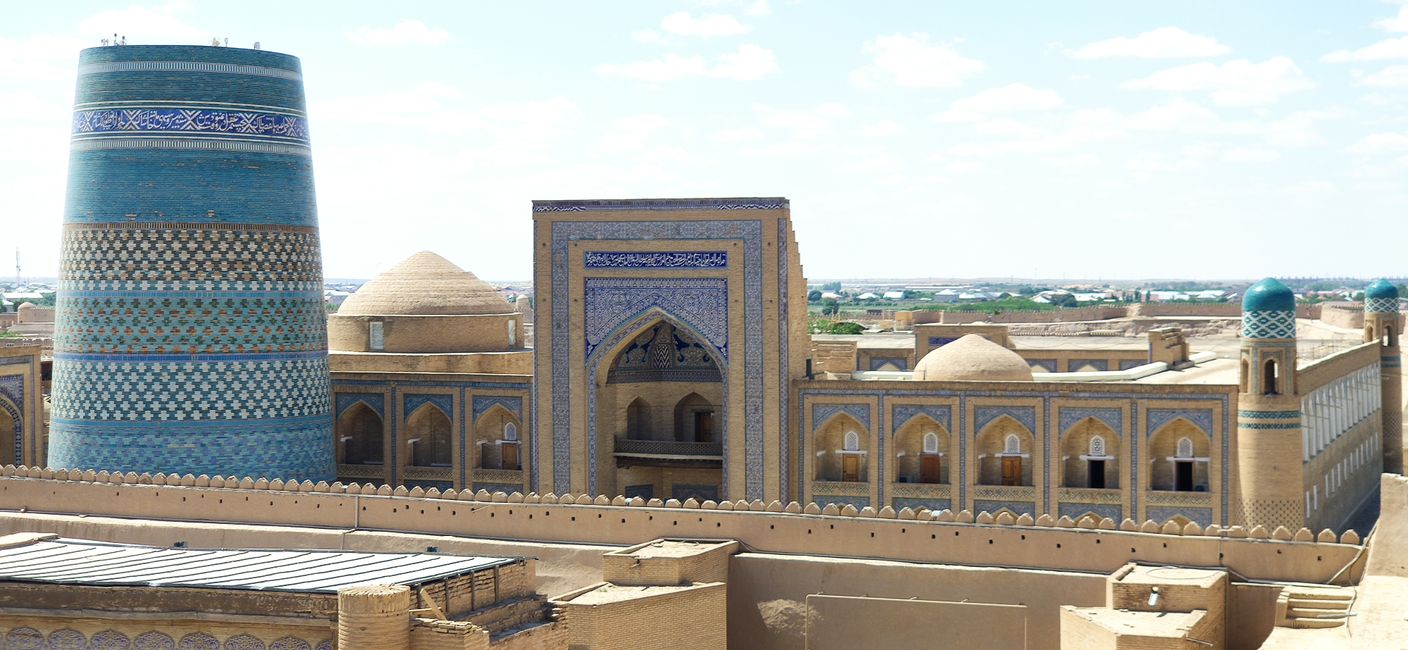
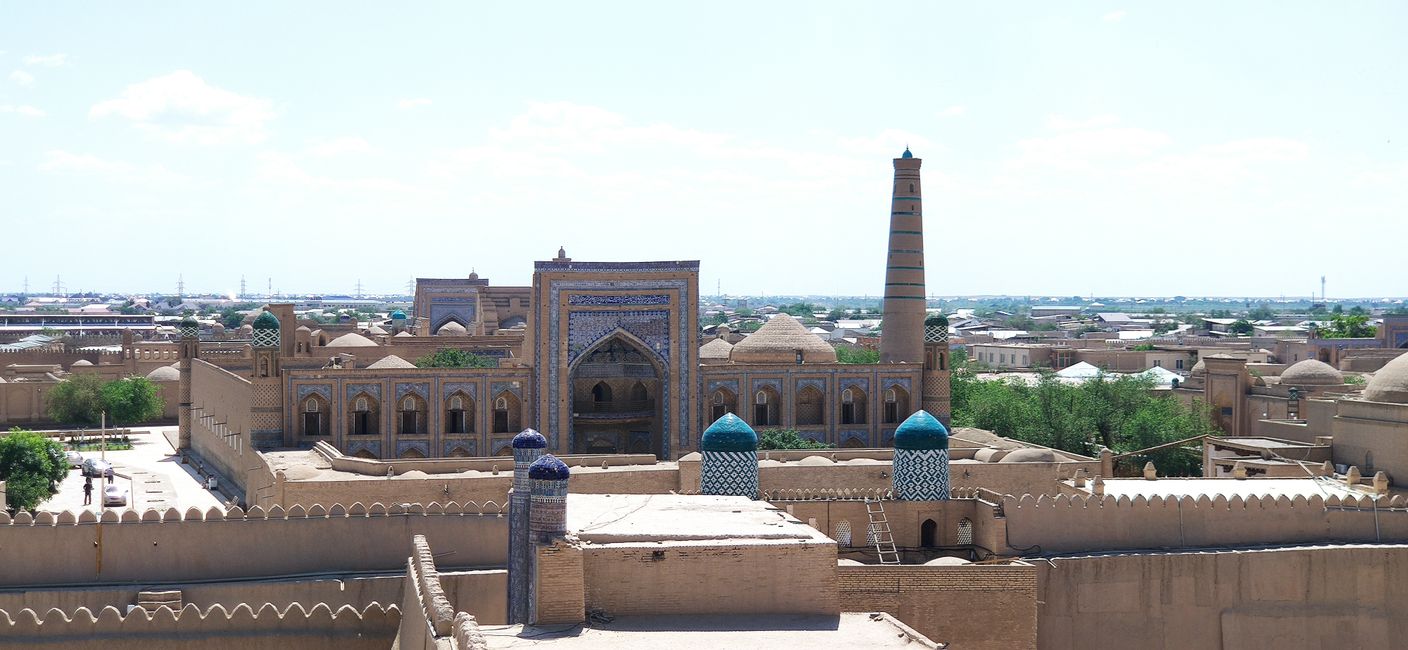
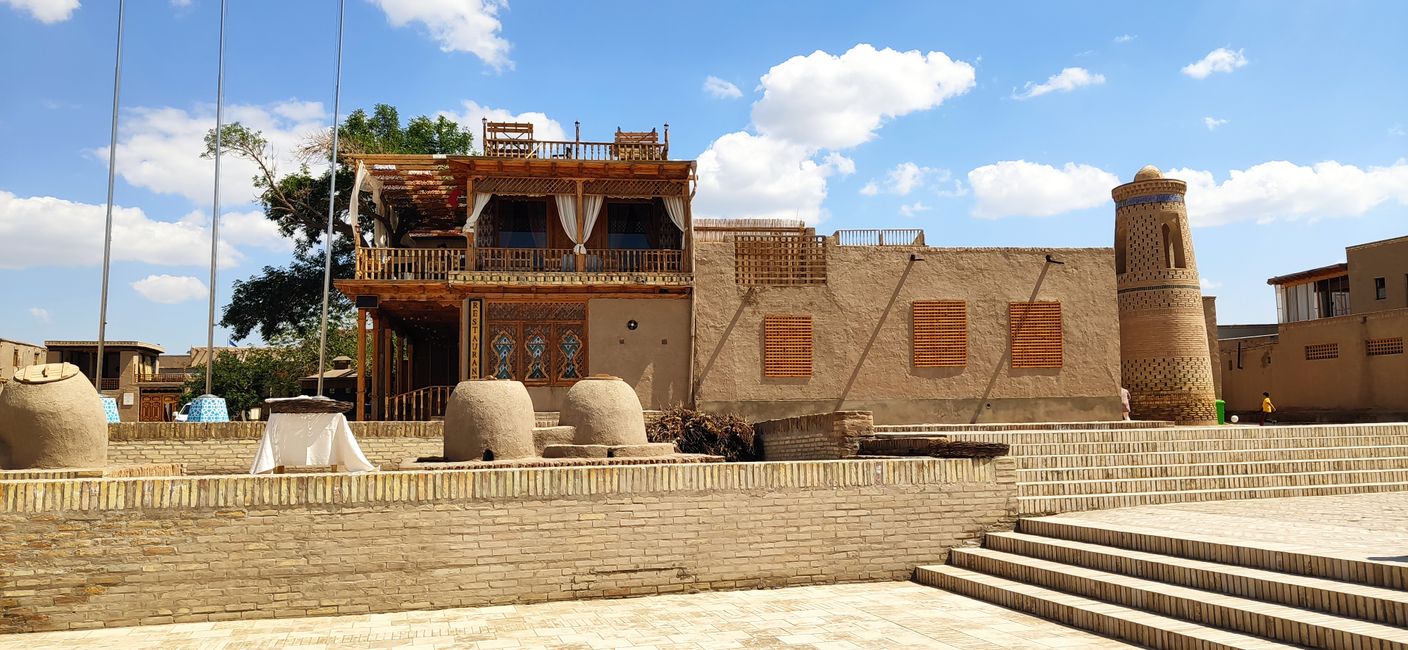
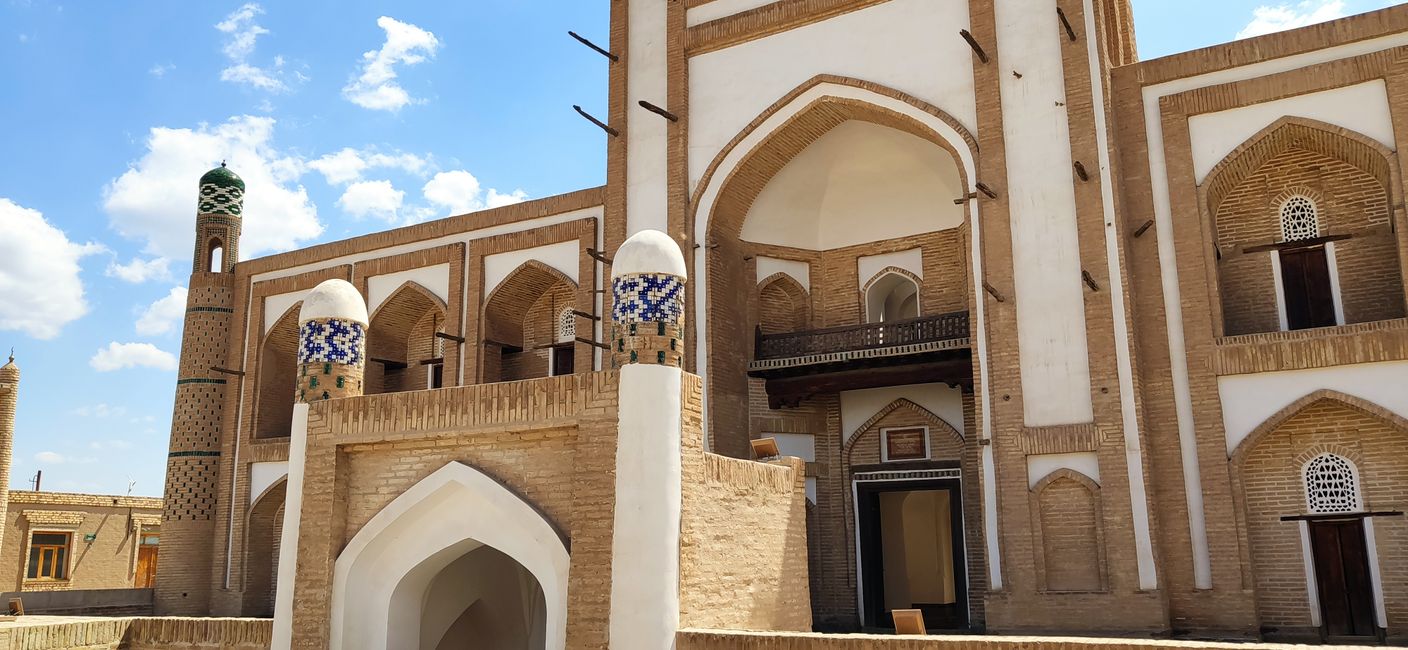
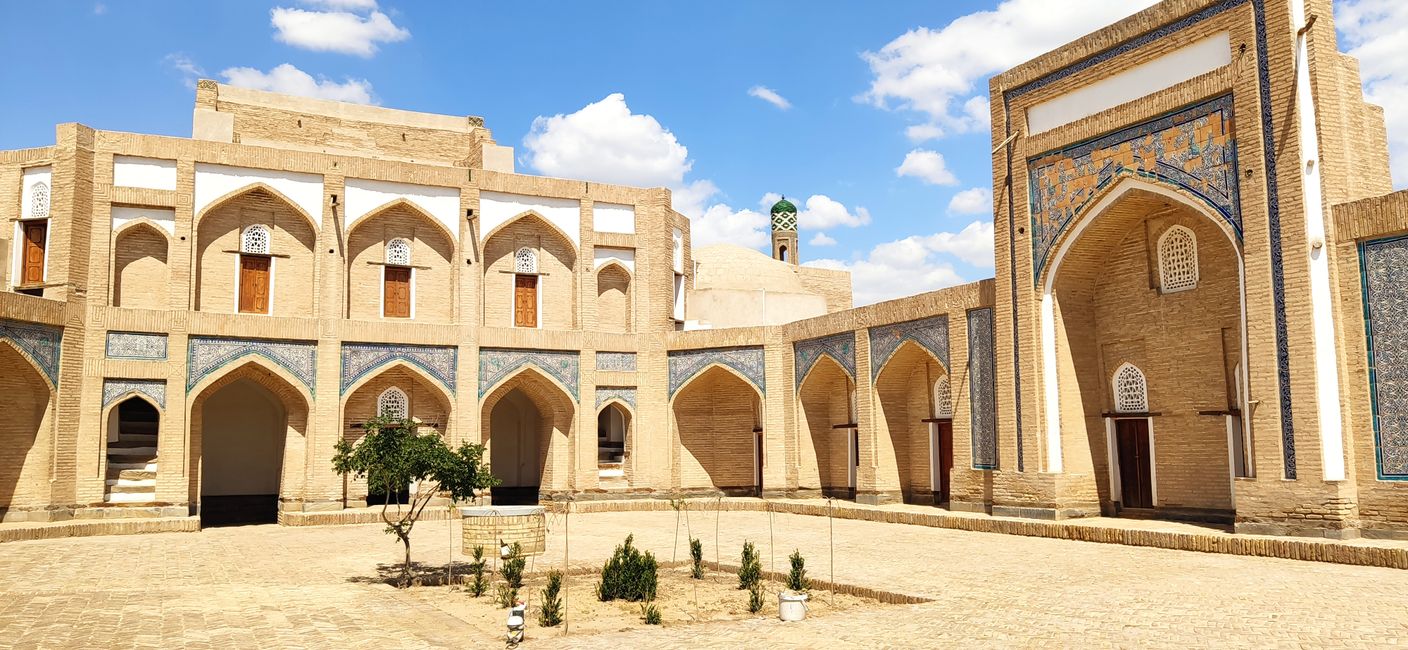
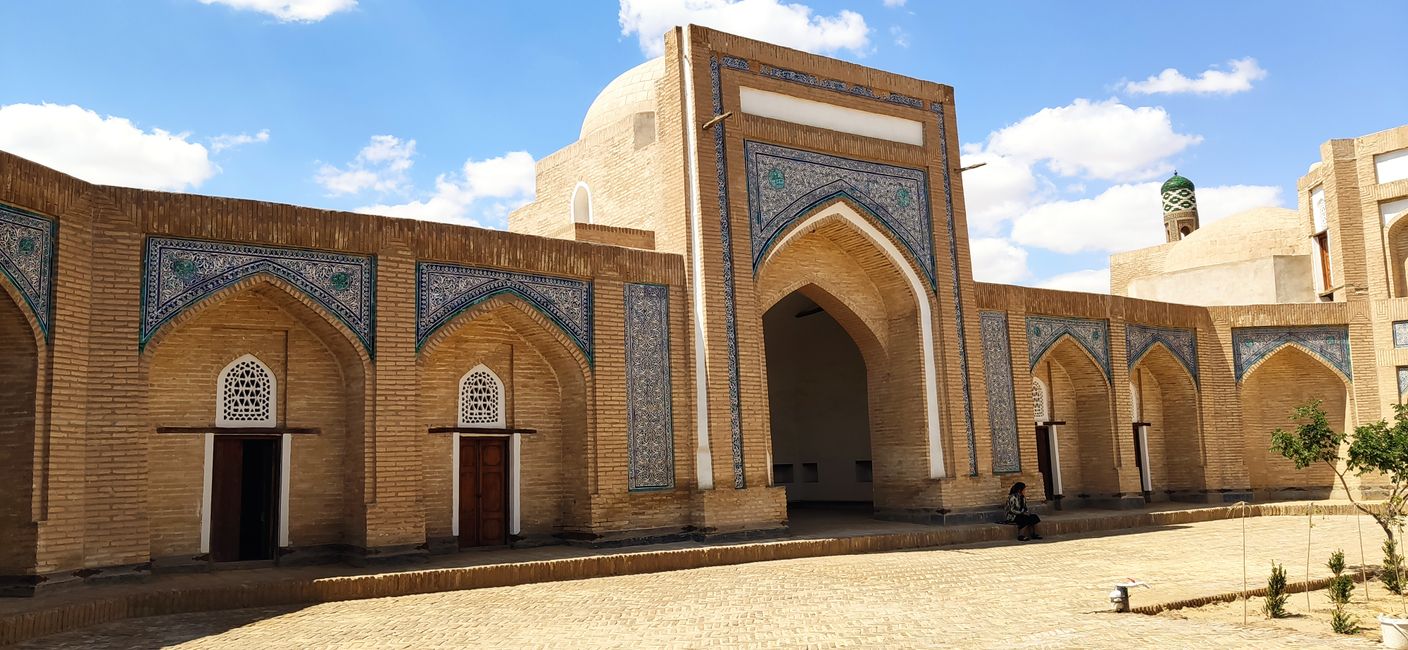
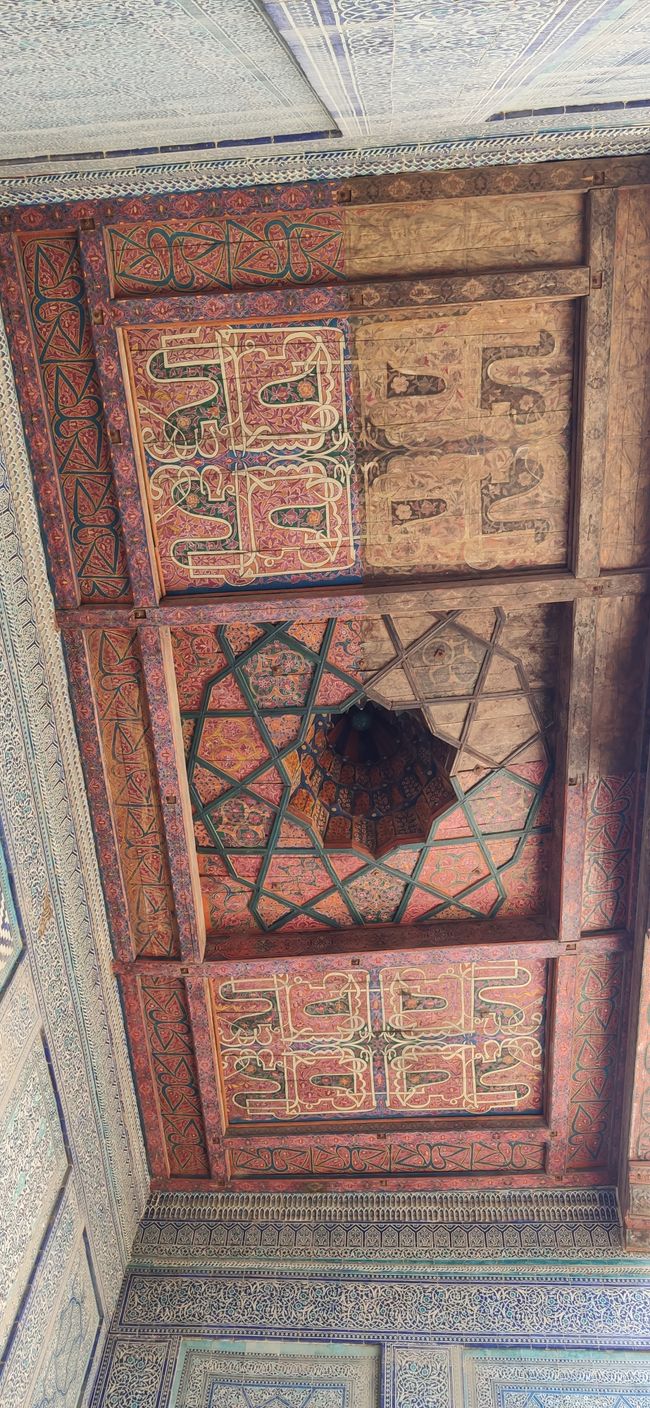
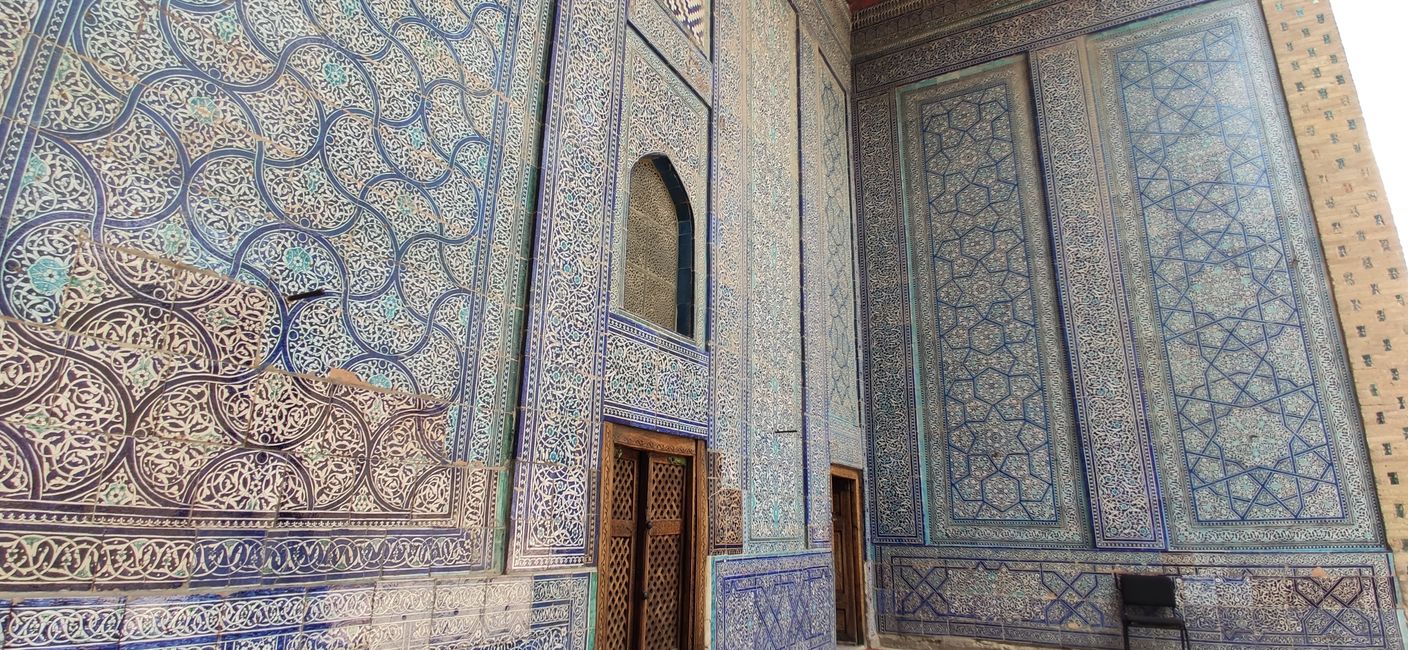
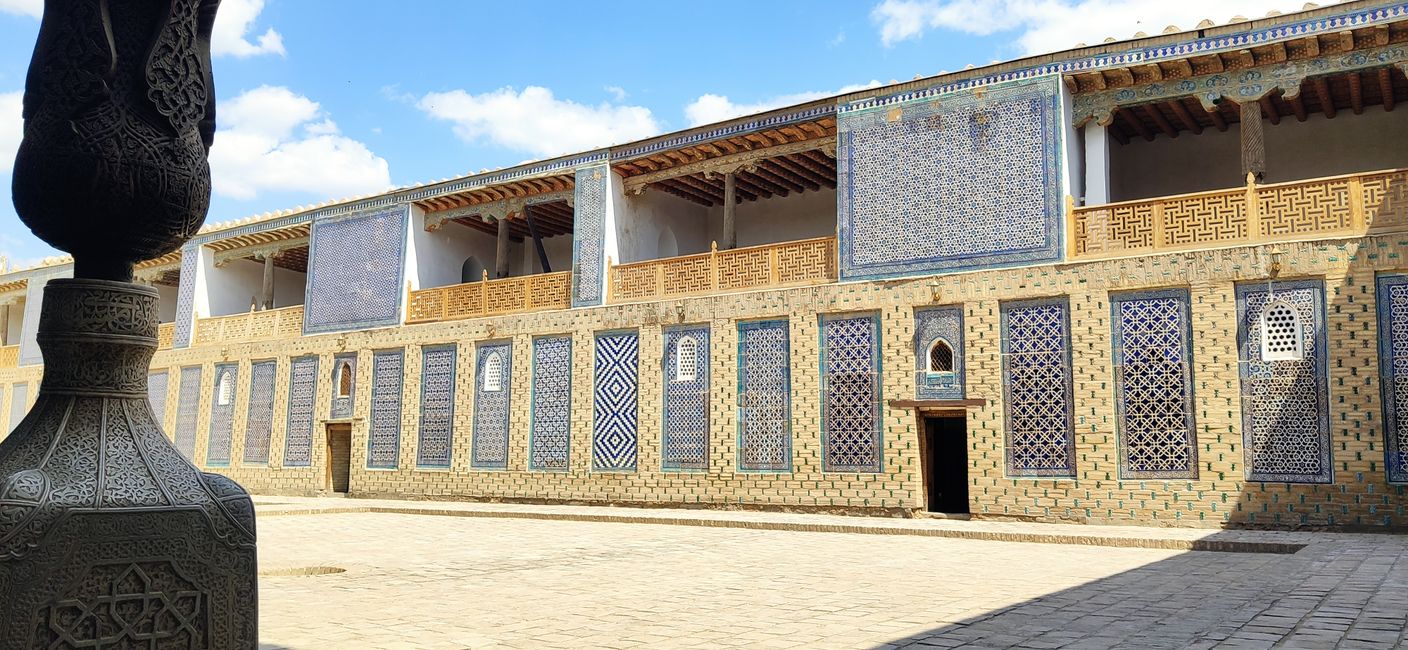
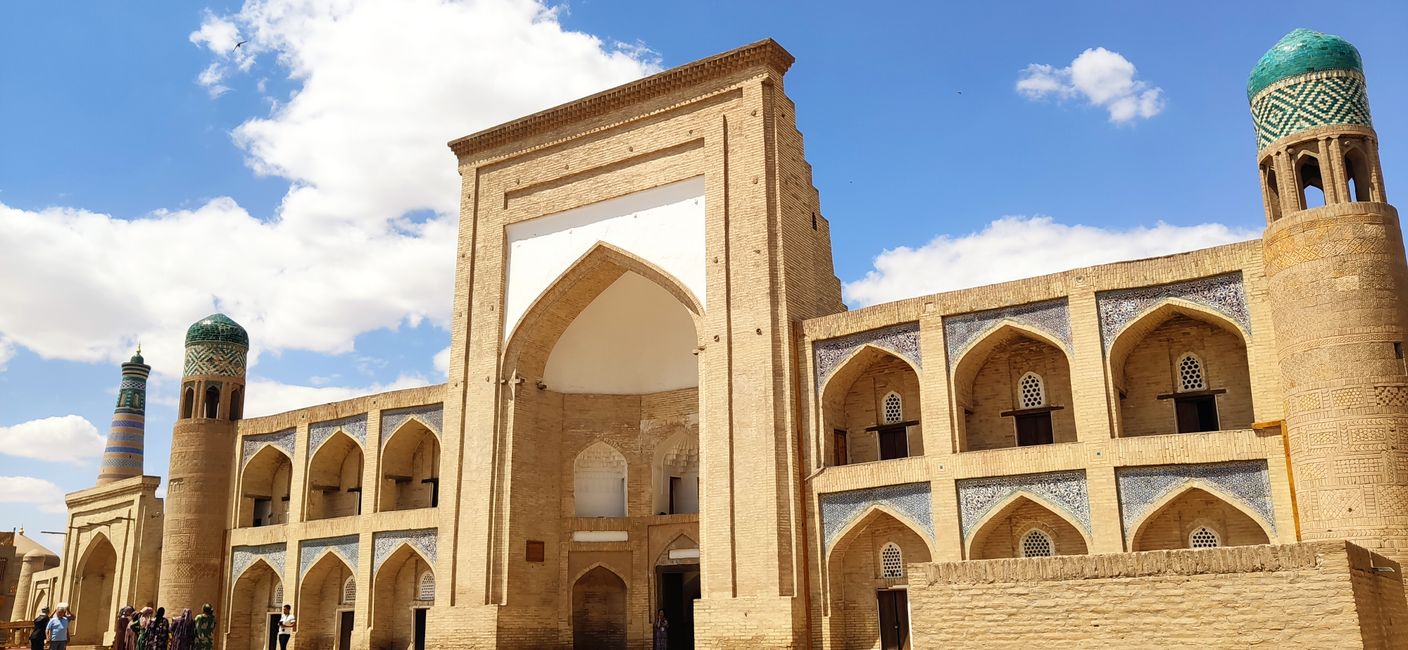
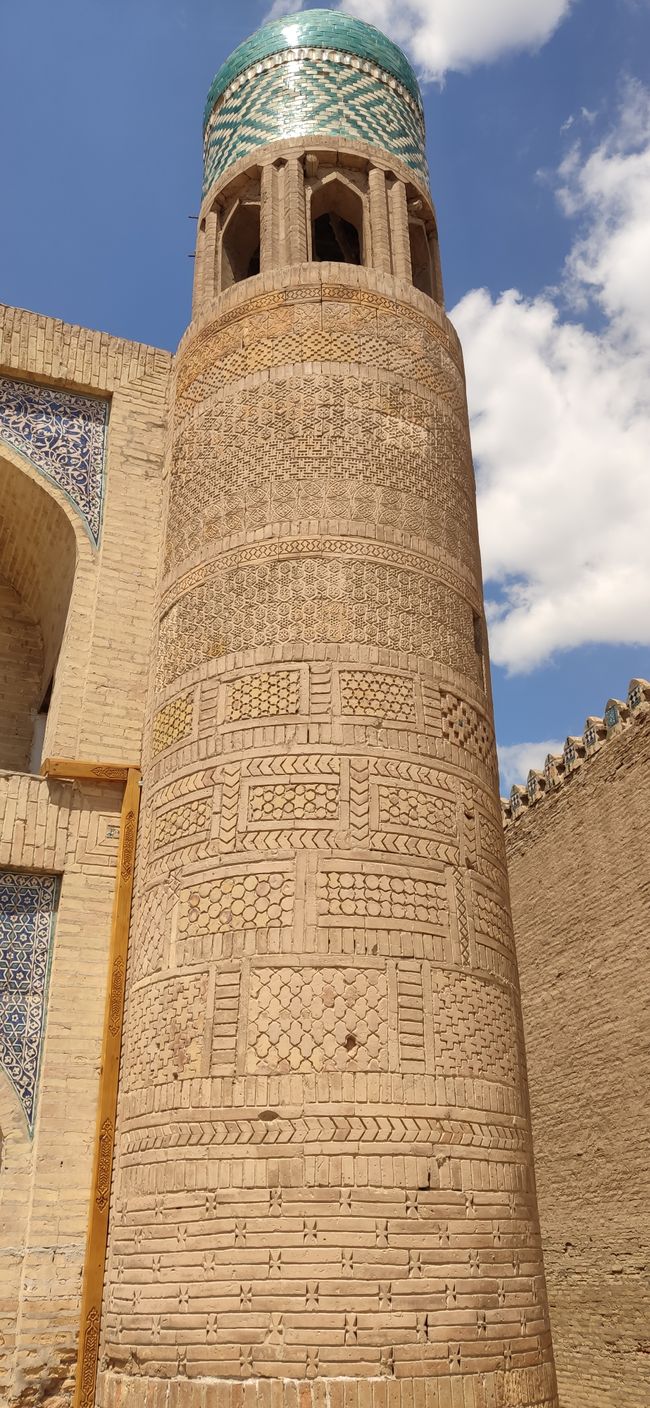
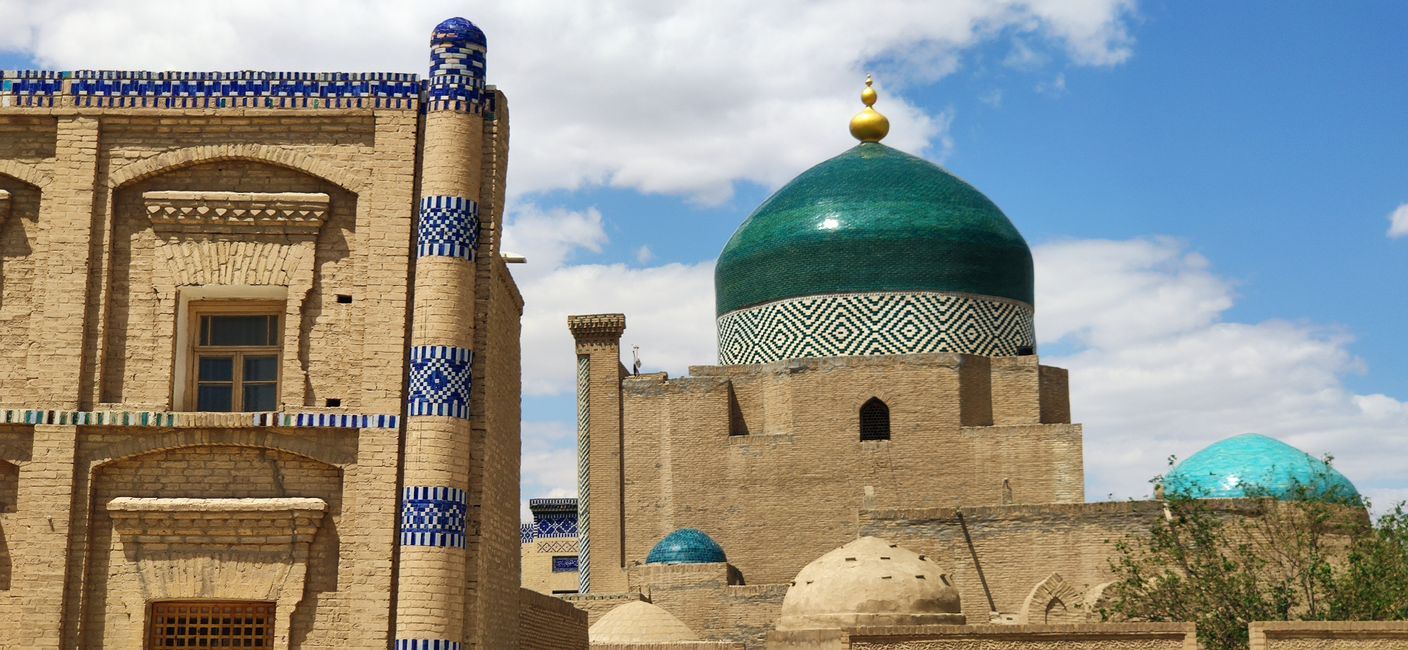
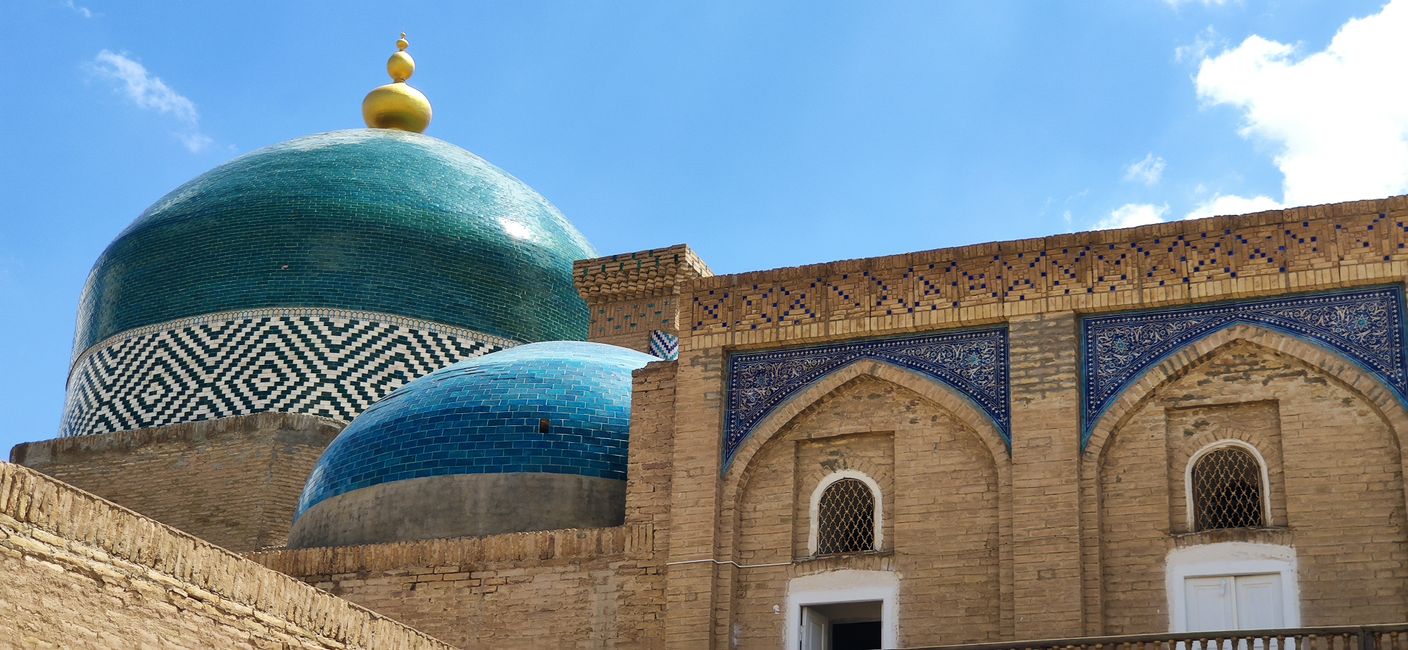
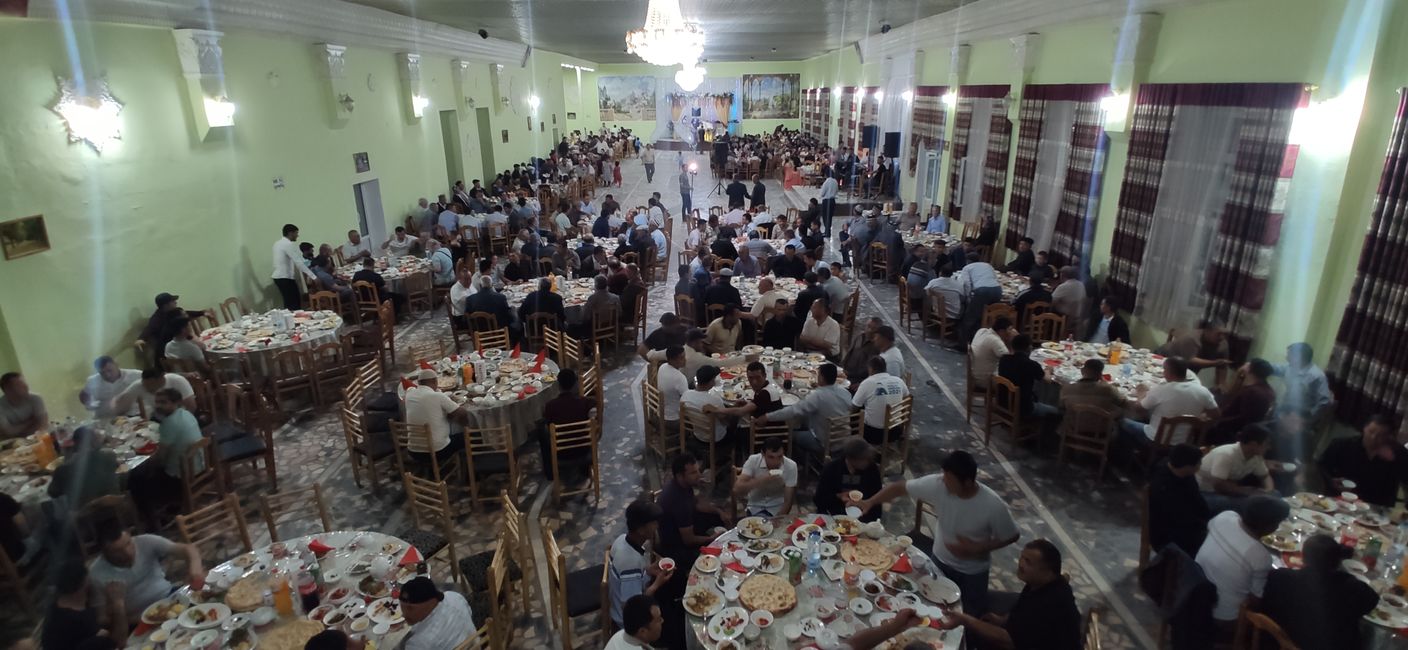
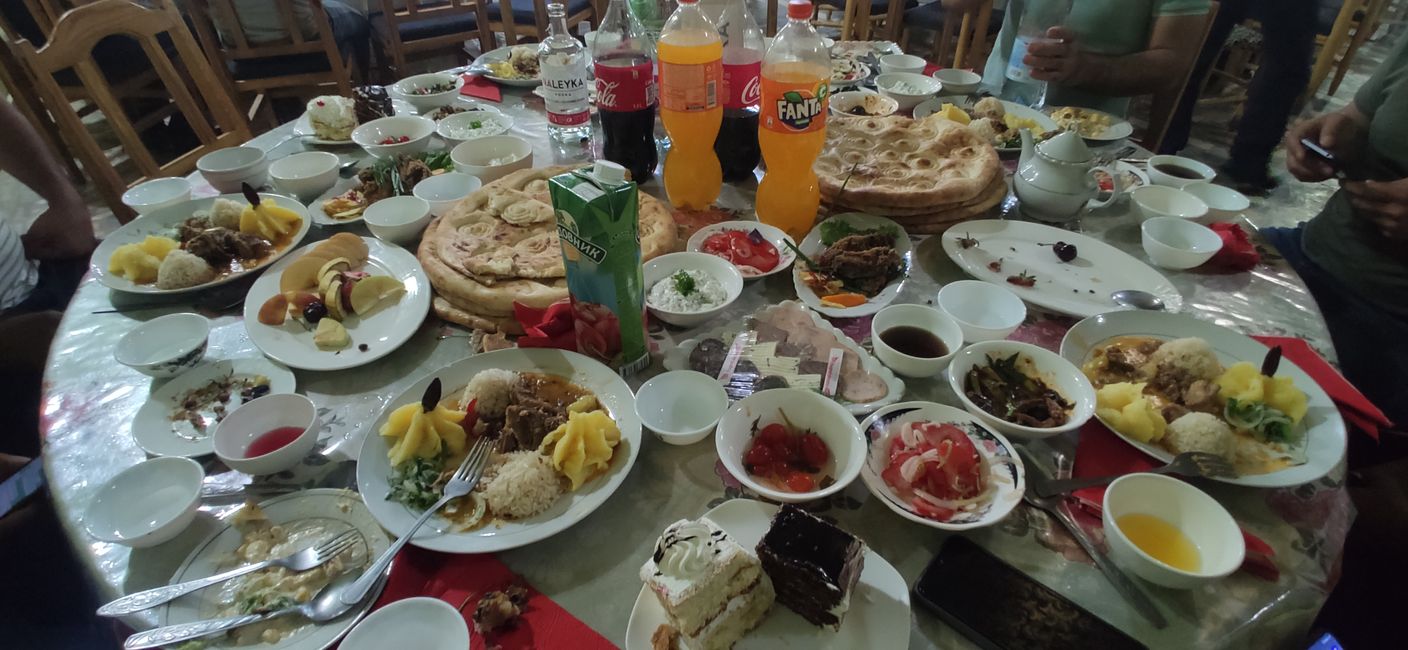
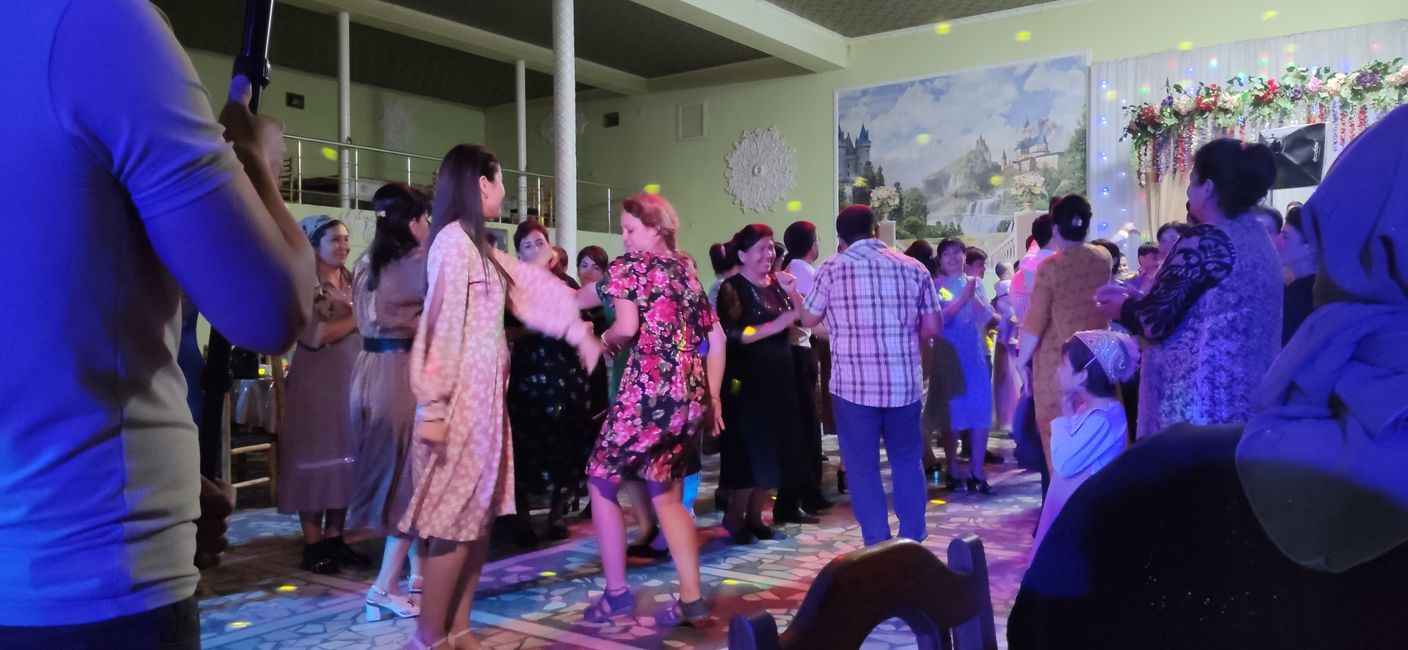
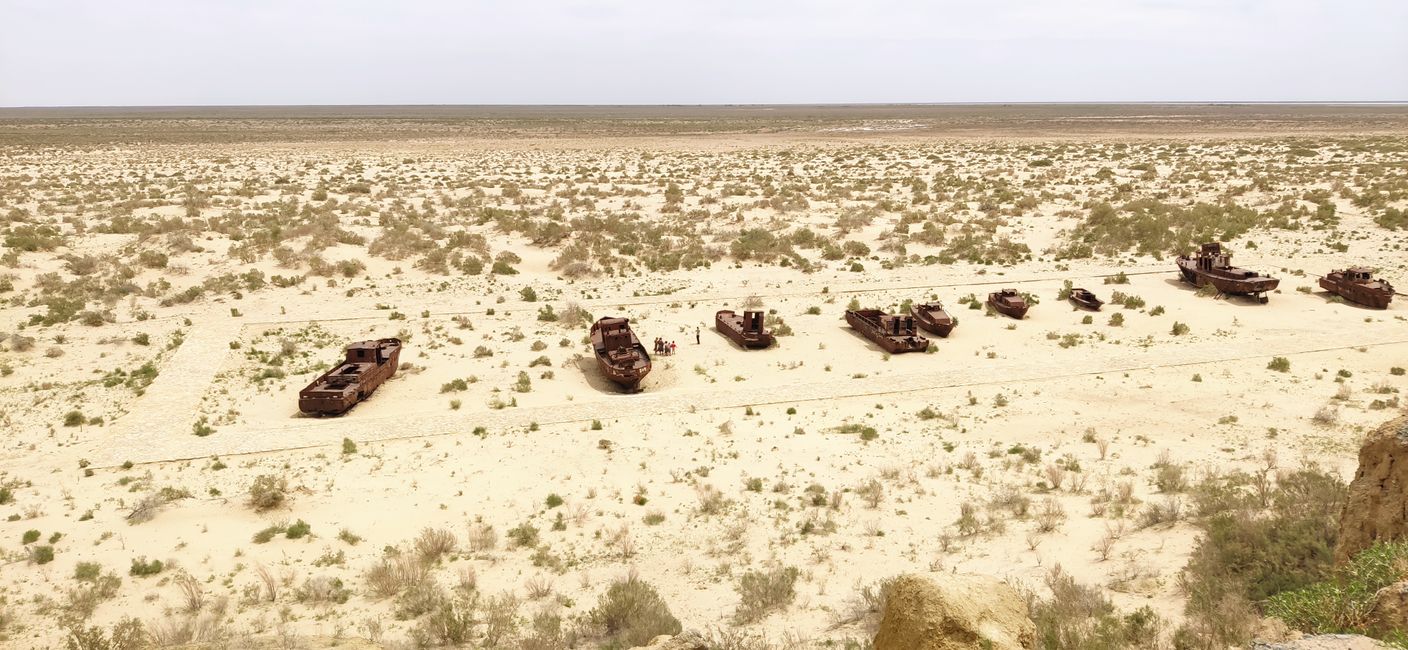
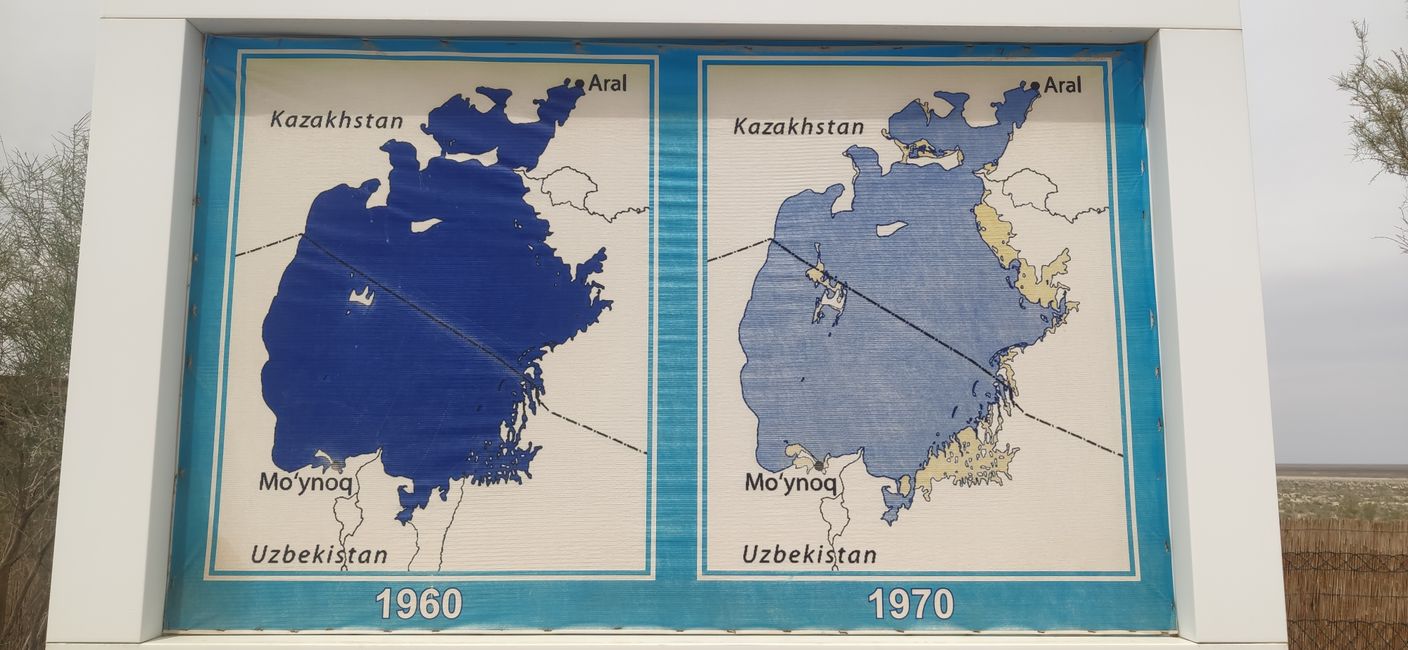
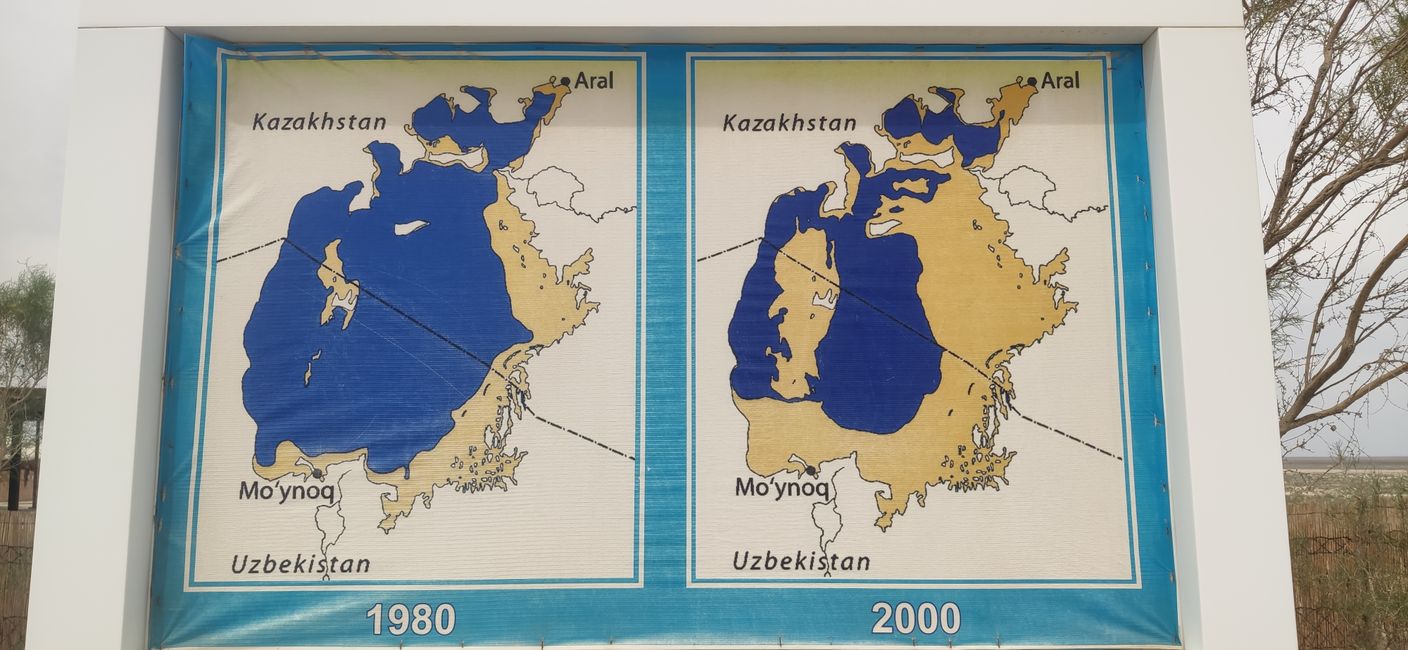
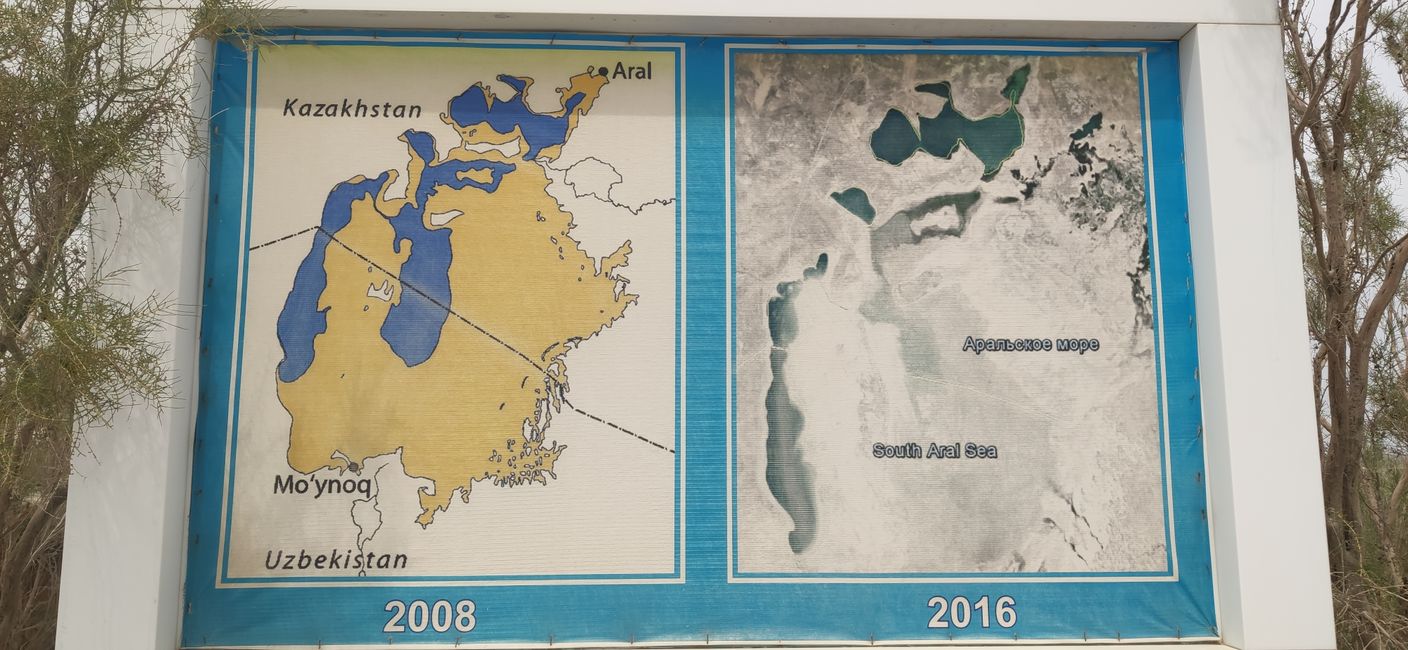
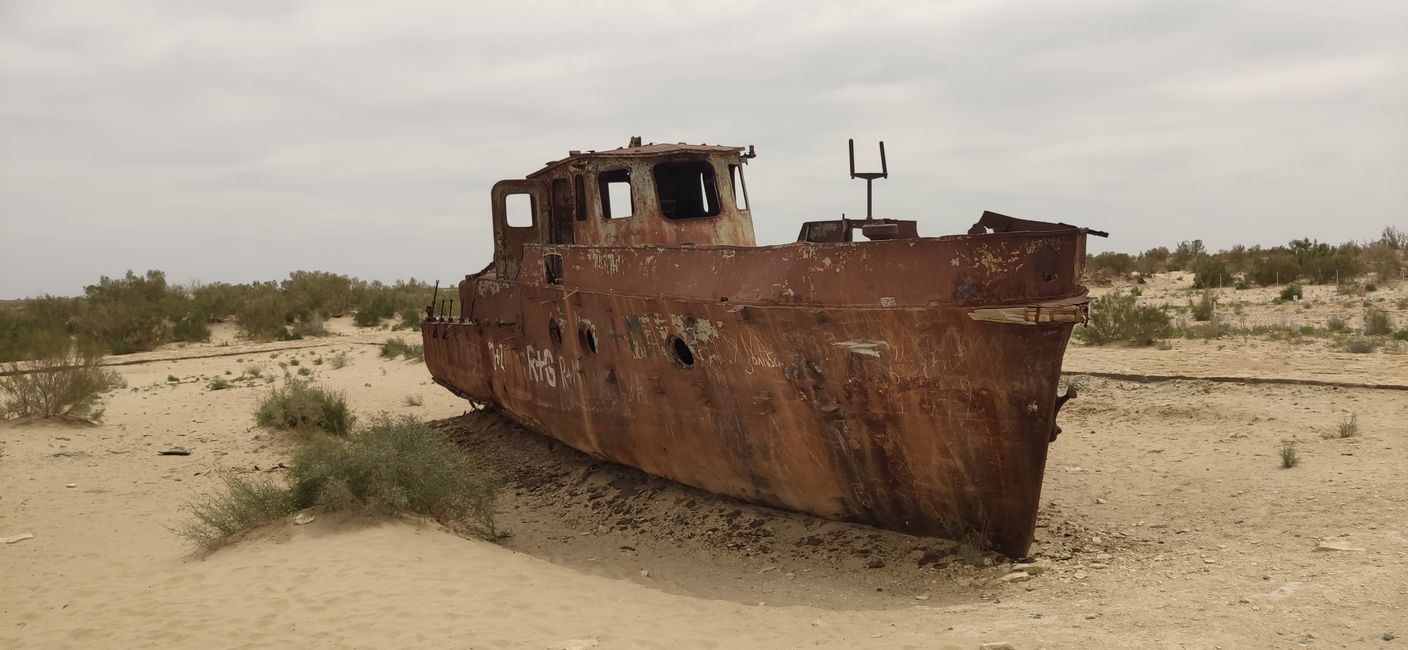
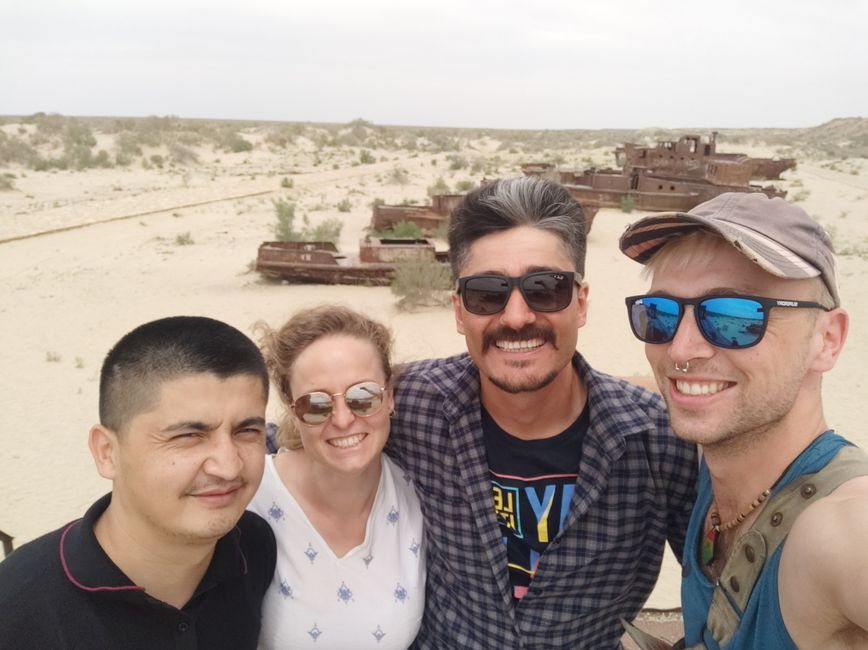
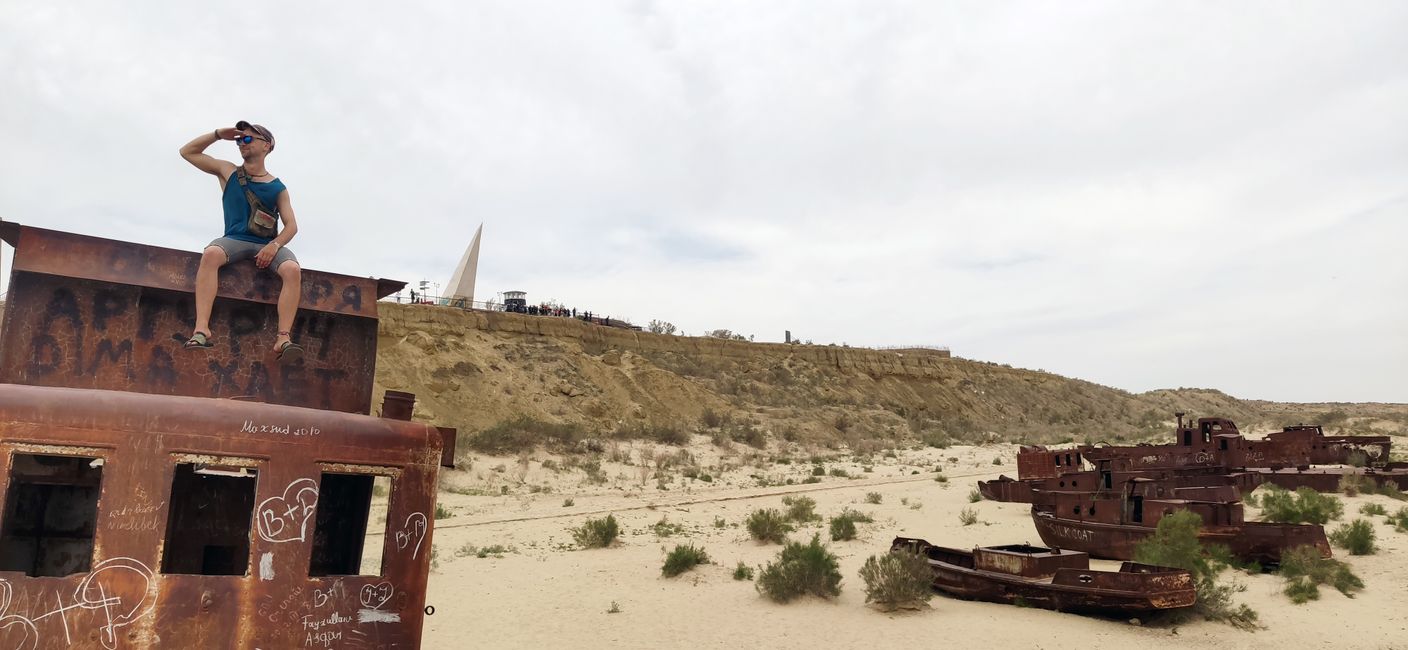
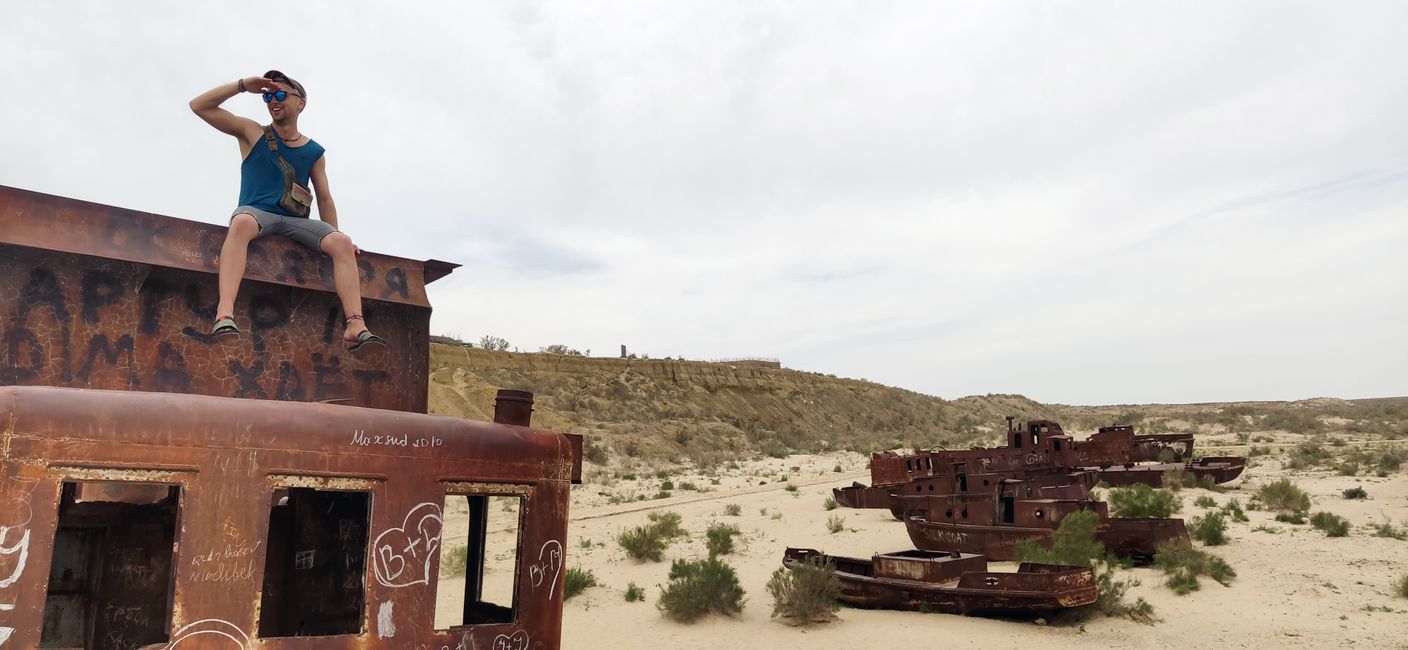
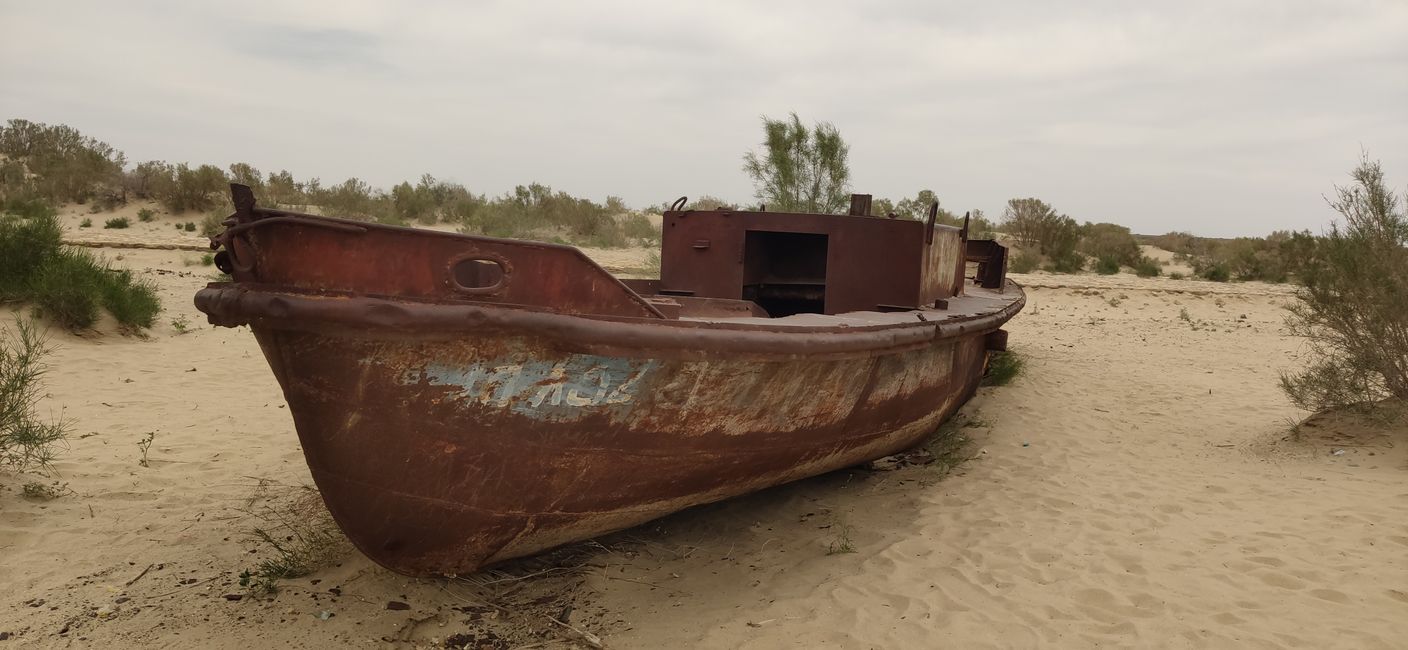
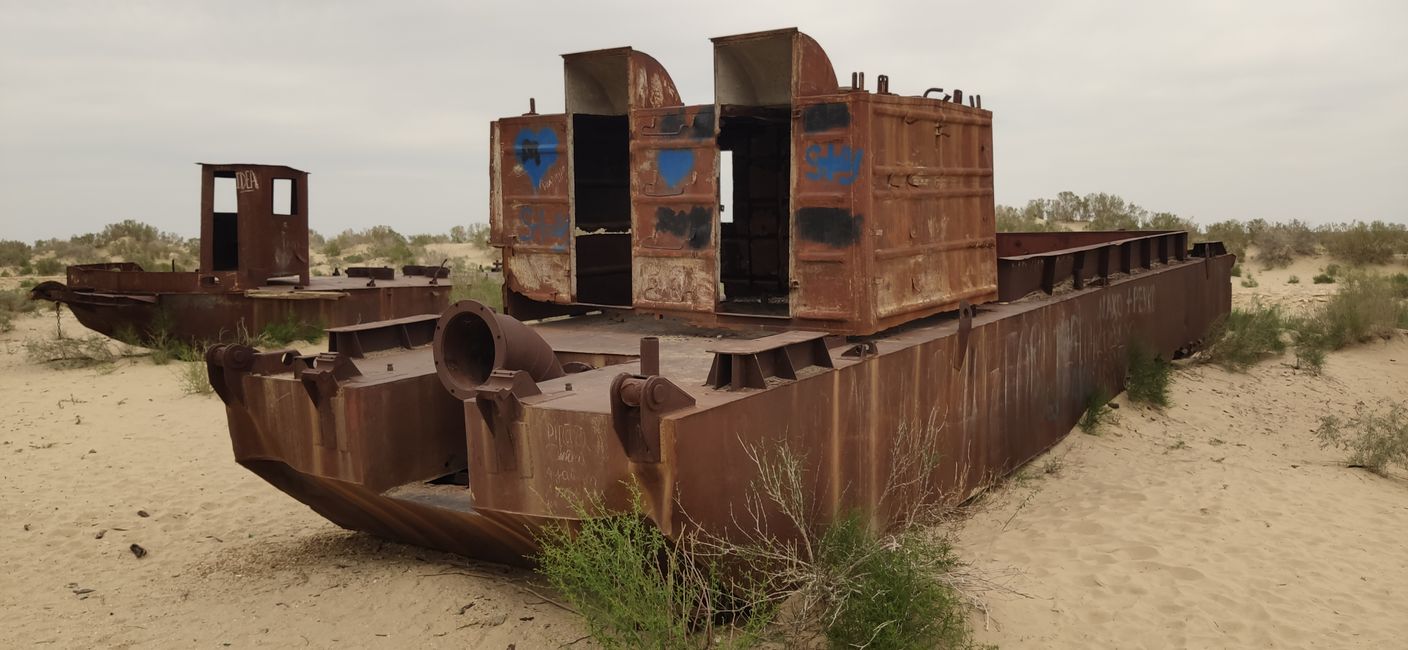
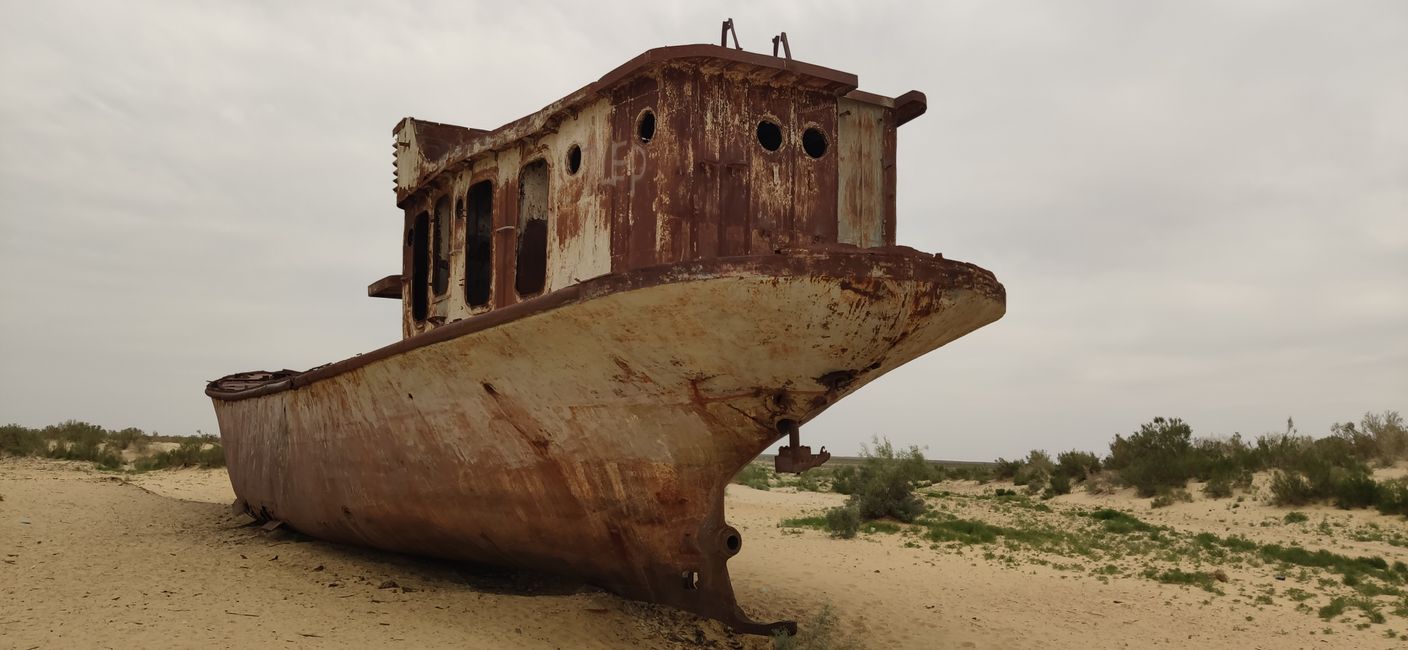
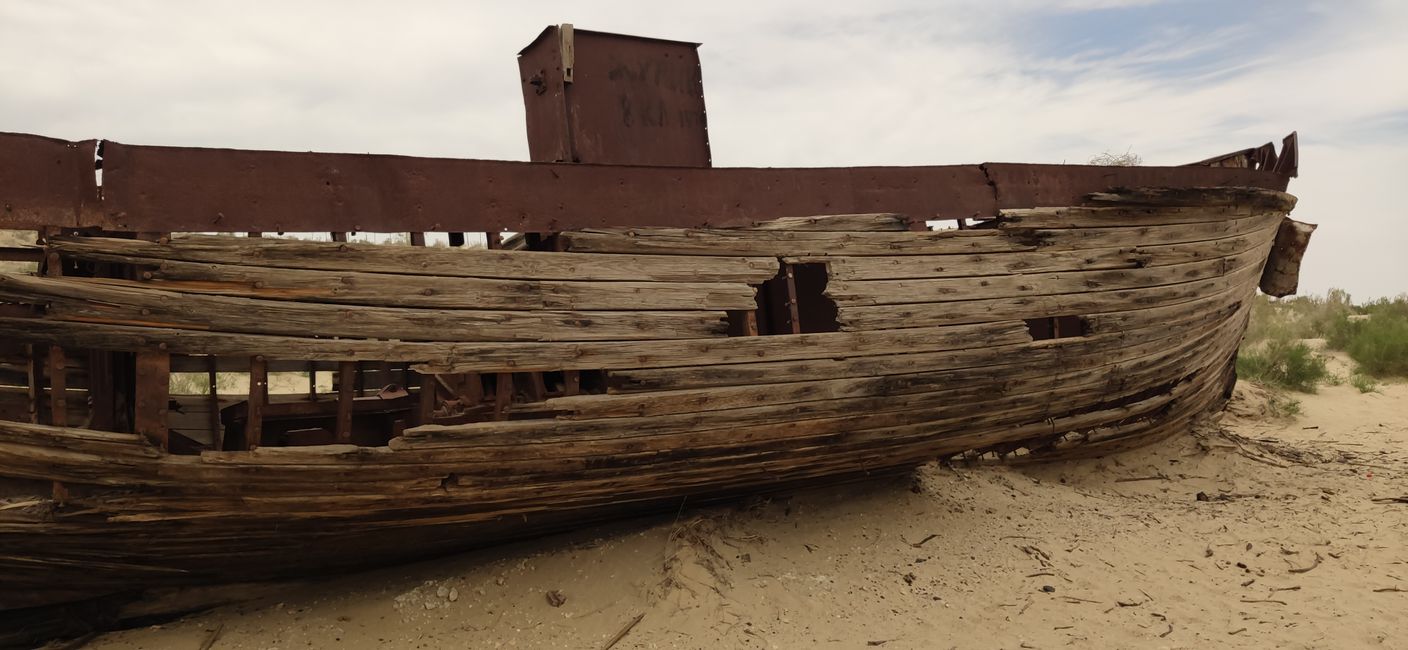
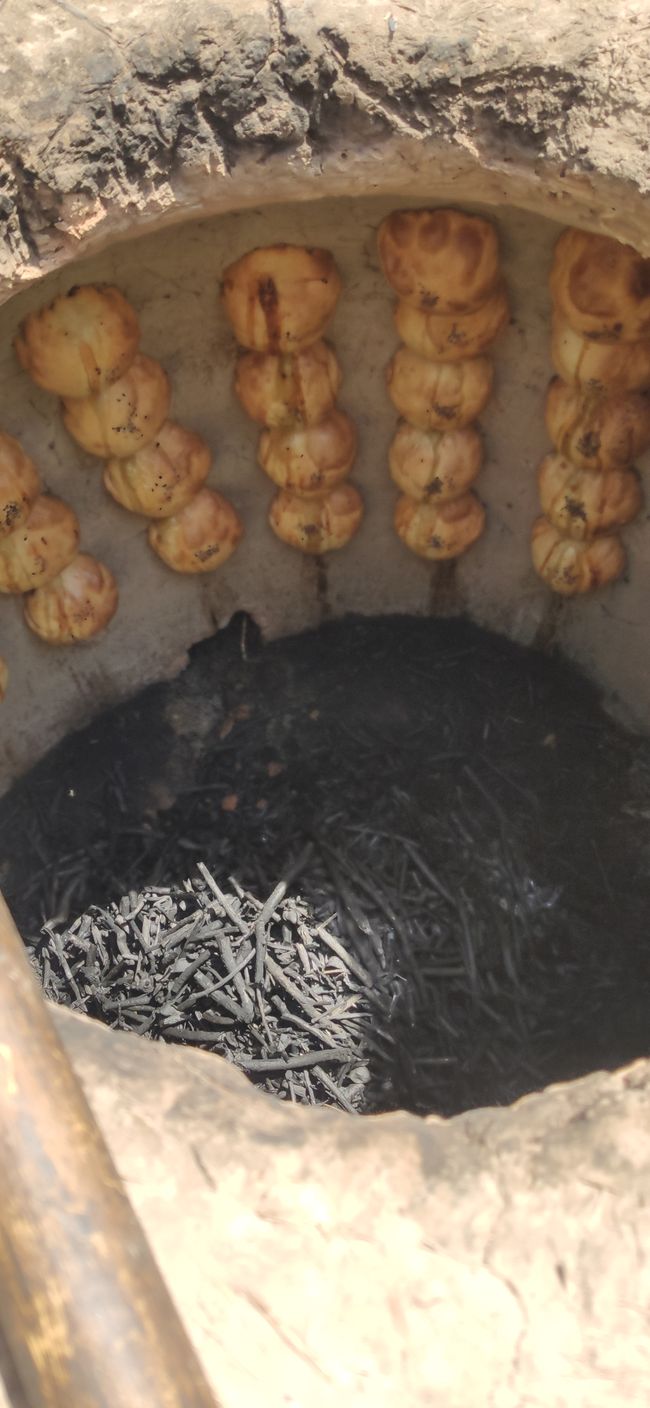
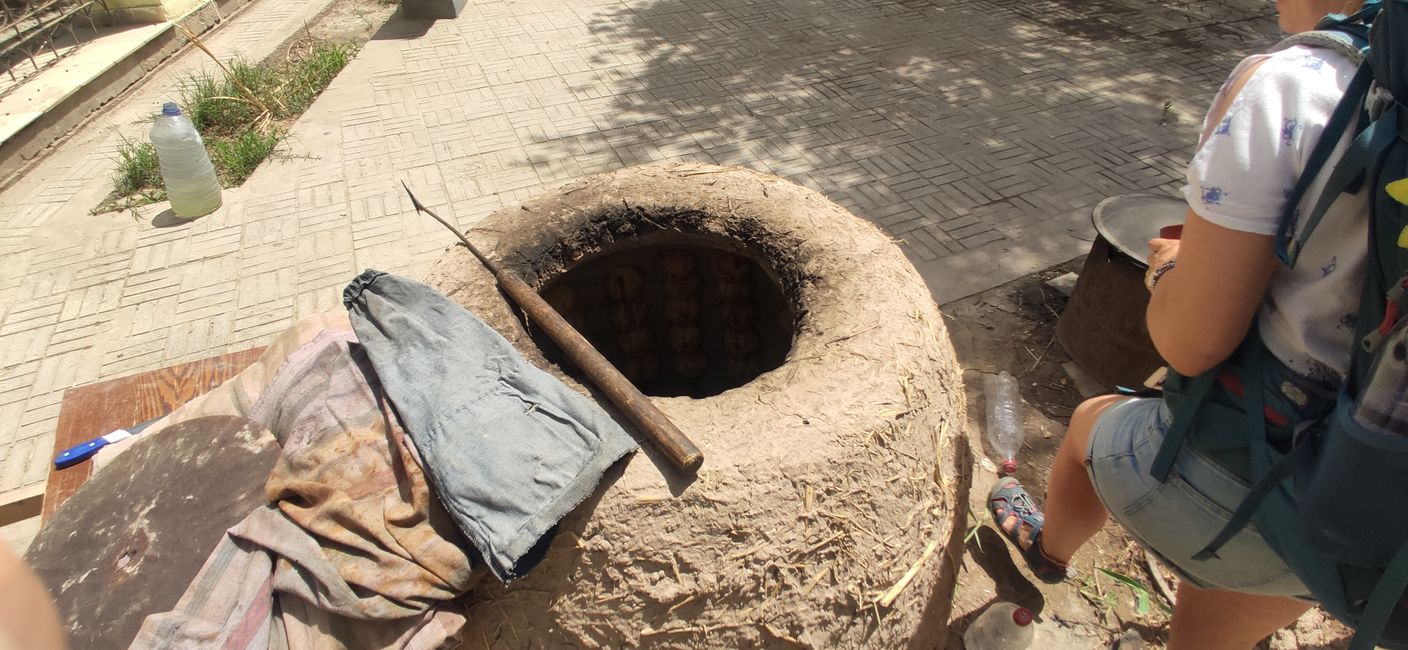
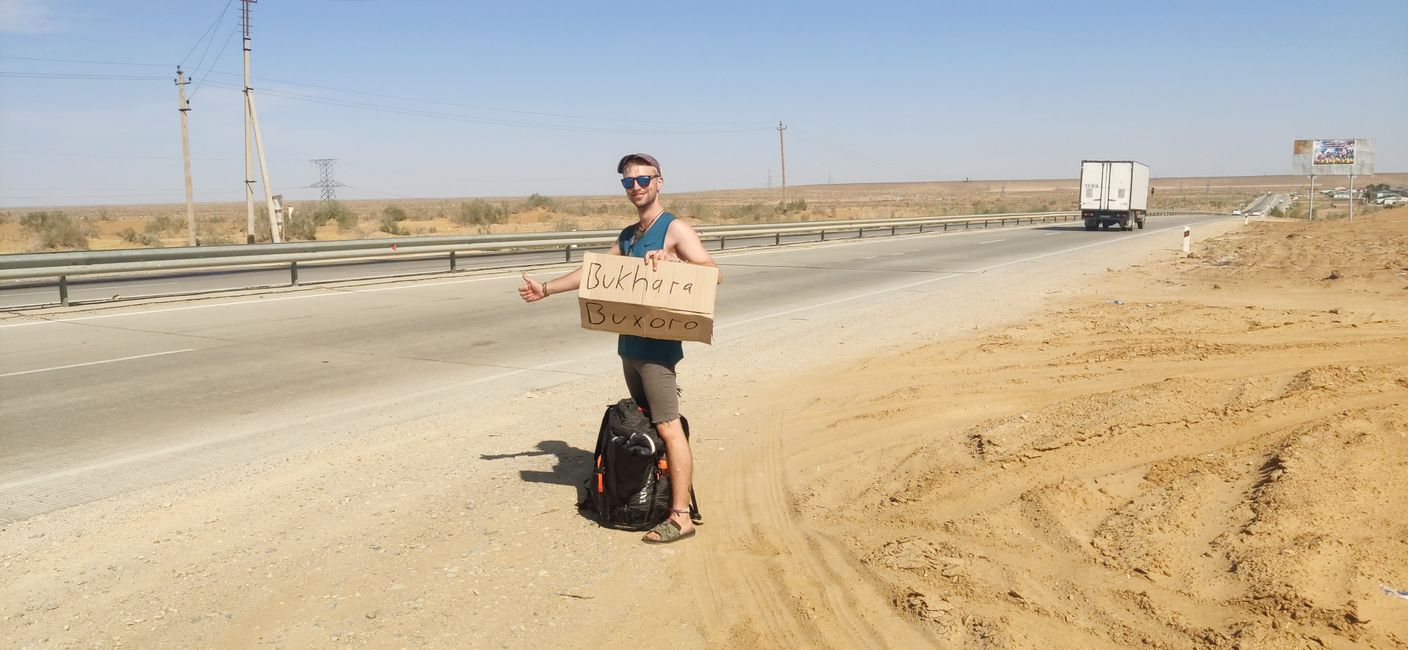
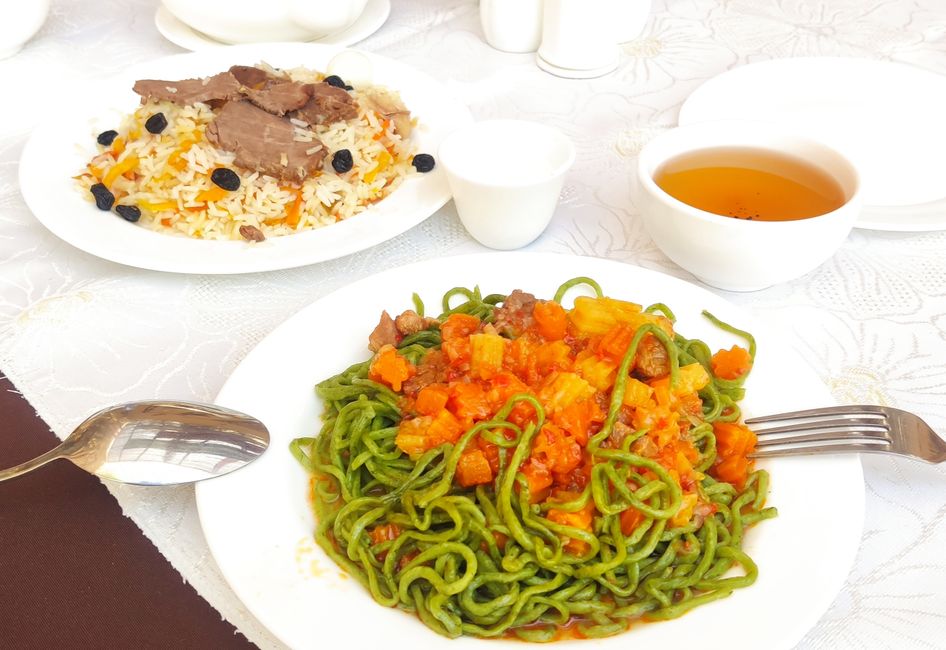
خبری مکتوب کے لیے درخواست دیں
We went from Samarkand to Khiva by night train. The trips takes 11:30h.
 This train station looks especially exceptional!
This train station looks especially exceptional!The night train was from old soviet times. New ones have cabins but this one not. Also the mattresses were really worn out and beyond comfortable and it was really cramped with people.
 The lower beds have more space but as we booked, all of them were already taken. Anyway the ride as actually pretty OK. I listened to some podcasts, played cards with hanna and went to sleep. When I woke up again we just had 2-3 hours left. Night trains, even these old ones, are really convenient 👌
The lower beds have more space but as we booked, all of them were already taken. Anyway the ride as actually pretty OK. I listened to some podcasts, played cards with hanna and went to sleep. When I woke up again we just had 2-3 hours left. Night trains, even these old ones, are really convenient 👌We arrived at 7:30 in the morning and the first impressions didn't disappoint!
 We found this beautiful madrasa (muslim school) on the way, checked in our hostel in and got breakfast. Very nice one actually!
We found this beautiful madrasa (muslim school) on the way, checked in our hostel in and got breakfast. Very nice one actually! Khiva is a special city of the silk road because all of the ancient buildings are still within the walls of the ancient city. It is completely packed with tourists and almost all buildings are repurposed as restaurants, shops or hotels. One of the biggest mosques is a hotel. It all feels a little bit like Disneyland.
Khiva is a special city of the silk road because all of the ancient buildings are still within the walls of the ancient city. It is completely packed with tourists and almost all buildings are repurposed as restaurants, shops or hotels. One of the biggest mosques is a hotel. It all feels a little bit like Disneyland.I mean it's ok to have a touristic place and I can't judge of what to do with cultural heritage but I got fed up very fast and couldn't really enjoy it. Anyway here are some pictures of this still beautiful place:



 We ate a dish that's common for the region, called 'Shivi Oshi'. It's green pasta, looks like this and gets its color from dill.
We ate a dish that's common for the region, called 'Shivi Oshi'. It's green pasta, looks like this and gets its color from dill.
It wasn't bad but I prefer Italian style pasta 😂 behind it is plof, a traditional rice dish.
Afterwards Hanna said that there would be a graveyard for ships in the desert, a 7h ride north from Khiva. She put a couch surfing event online and actually got a response of a local wanting to join us! His name is Mahmut and we planned to go the next day. Hanna and me wanted to meet him before and asked for a beer or tea in the evening. He responded that he would go to a wedding and long story short we went to the wedding aswell 😂 It's a tradition that the bridal couple invites everyone they know. Mahmut told us it's an honor if more people come so we were welcomed guests. And damn, it was a huge party!
 The tables were full and we got constantly more food.
The tables were full and we got constantly more food. Look at this madness. Everyone was already full but I guess it's part of the tradition that there is too much food..
Look at this madness. Everyone was already full but I guess it's part of the tradition that there is too much food..The good observers among you readers will notice the vodka on the table. Usually alcohol is forbidden in muslim culture but that changed here due to russian influence while the countries were occupied. So we had shots right after or before the Imam spoke his prayers.
 Aaaand there was dancing. I felt really uncomfortable in that situation but Hanna was absolutely in mood and rocked the dancefloor!
Aaaand there was dancing. I felt really uncomfortable in that situation but Hanna was absolutely in mood and rocked the dancefloor!After a short night (again a short one after the night train..) we got up early at 6 and went with Mahmut to this ship graveyard. On the way we picked a friend of Mahmut up who knew the way and drove the car.

This was once a huge lake, the Aral Sea. It has a very sad story that is (if the info boards can be trusted) the biggest ecological disaster of the 20th century. The majority of the lake got used to water cotton plants that thrive here, when they get enough water. An entire eco system got destroyed. The workers there were also forced to do so, much of it was child labor. And if that is not enough the russians had a lab to test biological weapons close by which still contaminates this area.
So yeah pretty big disaster over all. Here is the 'evolution' of the aral sea over the time:


 Buuuuut as sad as all of this is, the place makes some otherworldly pictures with the rusty ship wrecks in the desert:
Buuuuut as sad as all of this is, the place makes some otherworldly pictures with the rusty ship wrecks in the desert:


 And then we went 7 hours back again. It's been A LOT on the road for one day. This is somehow unrelated but nonetheless interesting: Almost all cars here drive with Methan (CH4). Methan has a very bad reputation on beeing worse in terms for global warming then CO2 but apparently not when you burn it. It can be easily produced with carbon from the atmosphere and water, resources we have have both enough of. If produced with green energy it's a way better choice then petrol! It sounds to me like an easier way than Hydrogen (german: Wasserstoff) but is not as efficient. Read up on it, it's really interesting stuff!
And then we went 7 hours back again. It's been A LOT on the road for one day. This is somehow unrelated but nonetheless interesting: Almost all cars here drive with Methan (CH4). Methan has a very bad reputation on beeing worse in terms for global warming then CO2 but apparently not when you burn it. It can be easily produced with carbon from the atmosphere and water, resources we have have both enough of. If produced with green energy it's a way better choice then petrol! It sounds to me like an easier way than Hydrogen (german: Wasserstoff) but is not as efficient. Read up on it, it's really interesting stuff!
 They stick on the inside of this clay oven and get a really smokey aroma. When they are done, they are scraped off. Good shit! It's our favourite street food so far.
They stick on the inside of this clay oven and get a really smokey aroma. When they are done, they are scraped off. Good shit! It's our favourite street food so far. We even made a sign this time.
We even made a sign this time. When a pharmacists saw us on the street trying to make this sign before we left Khiva he said we should sit on the table of his pharmacy, not on the street, simply took my backpack into his shop next to the table and gestured us in. Then he threw the piece of plastic (that I pulled at that time as material for the sign out of a trash pile) far away and offered us chai 😂 we declined and asked for carton. He was utterly confused, asked us how long we wanted to stay in town and invited us into his home. We declined again and really wanted our carton. Finally we got it, wrote 'Bukhara/Buxoro' on it, thanked him for everything and went our way to hitchhike through the desert. We probably thinks we are crazy or something.
Actually hitchhiking was pretty annoying this time because people so far west usually spoke poor russian and wouldn't stop trying to communicate with Hanna. She got fed up pretty fast since it's really difficult for her. Also people often think that bad understanding is just a matter OF VOLUME AND START TO SPEAK VERY LOUD. AS YOU CAN IMAGINE, IT DOESN'T HELP WITH OUR NERVES. For the next hitchhiking we'll try pretending Hanna beeing from France, not speaking ANY russian and me doing the basic conversation. They usually stop trying with me after the tenth time shrugging and saying 'ni panimayu rusky'.
We arrived in the evening in Bukhara, it's the day after that I'm writing this.
See you soon, I kinda start to miss home a bit!
خبری مکتوب کے لیے درخواست دیں
جواب دیں۔
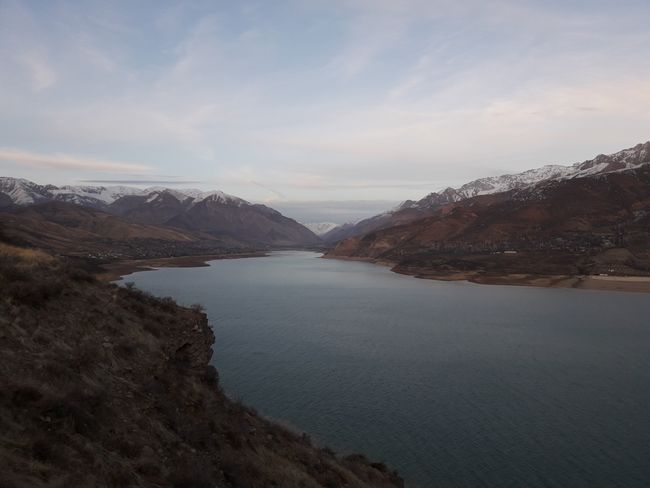
سفری رپورٹس ازبکستان
